THAD Final
1/58
There's no tags or description
Looks like no tags are added yet.
Name | Mastery | Learn | Test | Matching | Spaced |
|---|
No study sessions yet.
59 Terms

Joseph ibn Hayyim
Colophon to the Kennicott Bible
1470
Kennicott Bible was a Hebrew Bible that Hayyim worked on, where the Jewish people had to create their own physical copies of religious texts, due to Christian monks that refused to help print them, and also the Jewish people were discriminated against at the time, where not long after the K.B was published, Jewish families were forced to evacuate or convert to Catholicism.
Shows manipulation of abstract artwork to convey ideas about God and Religion.
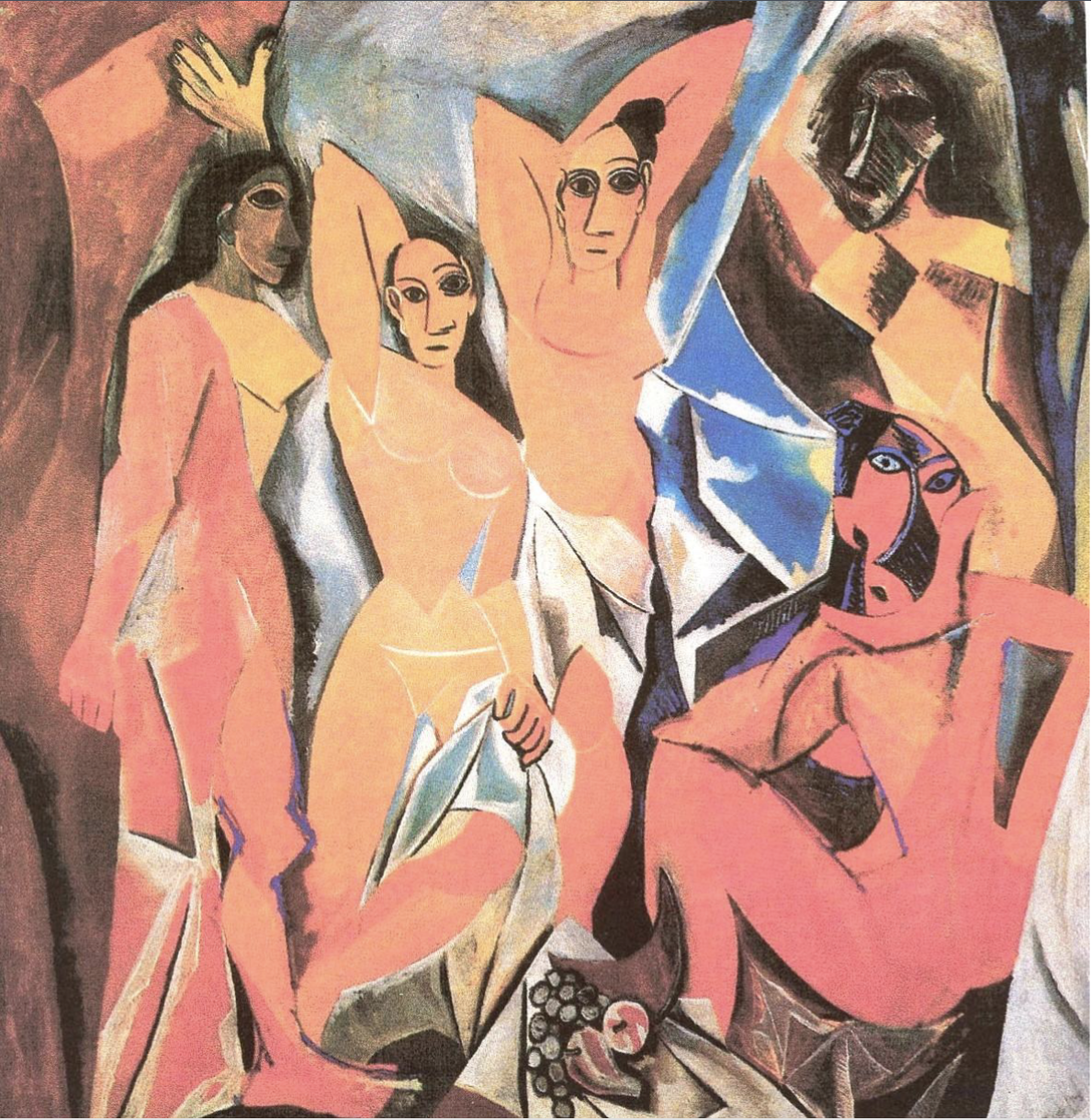
Picasso
Les Demoiselles Avignon
1910
Erasure of African Art influence without acknowledging it, shows how the abstraction movement violently erases and refuses to give credit to African/non-European cultures who’ve been making art similar to European abstract art.
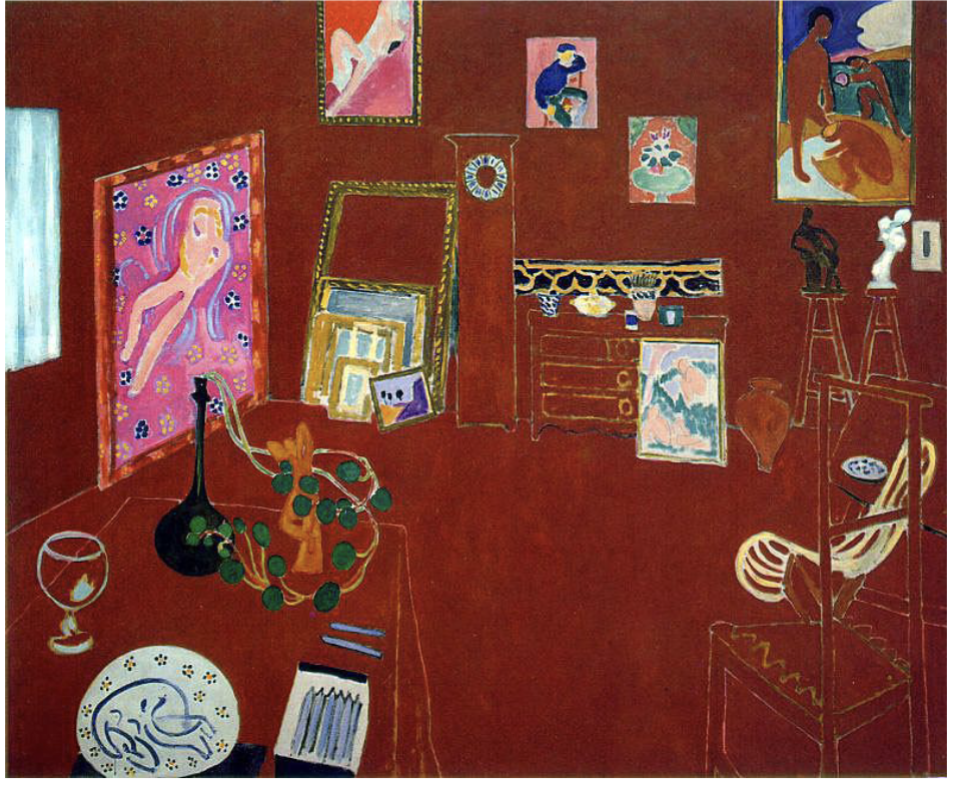
Henri Matisse
The Red Studio
1910
Monochromatic Abstract Art, one of the two popularized european abstract art techniques, and it’s seen as more feminine, emotional, and irrational when compared to the grid method, which is more masculine.
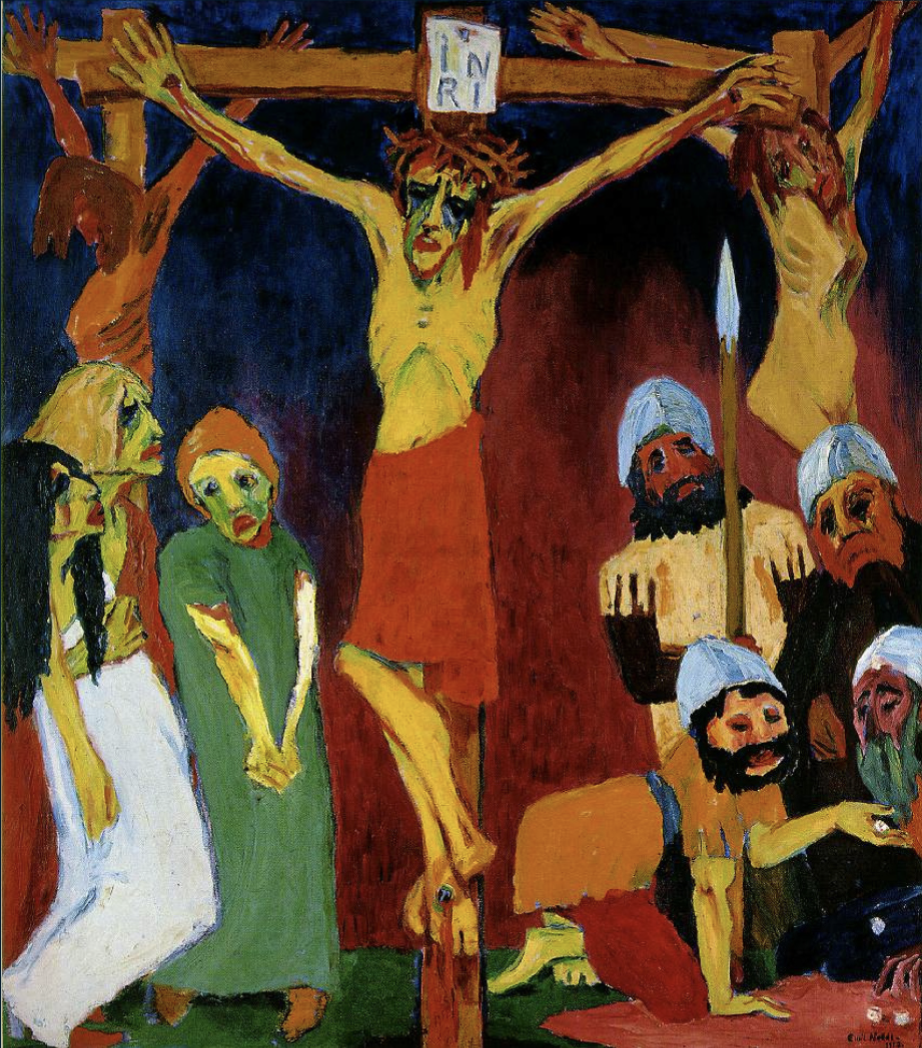
Emile Nolde
Crucifixion
1910
Another stance on the crucifixion of Jesus, where he is depicted as sickly and frail, compared to the Biblical heroic savior he is often portrayed as. This piece is much more visceral and emotion-provoking, it was an example of expressionist, degenerate artwork that the Nazi Party was against (fyi Nolde was also a Nazi until got his ass kicked out cuz expressionism was a no no)
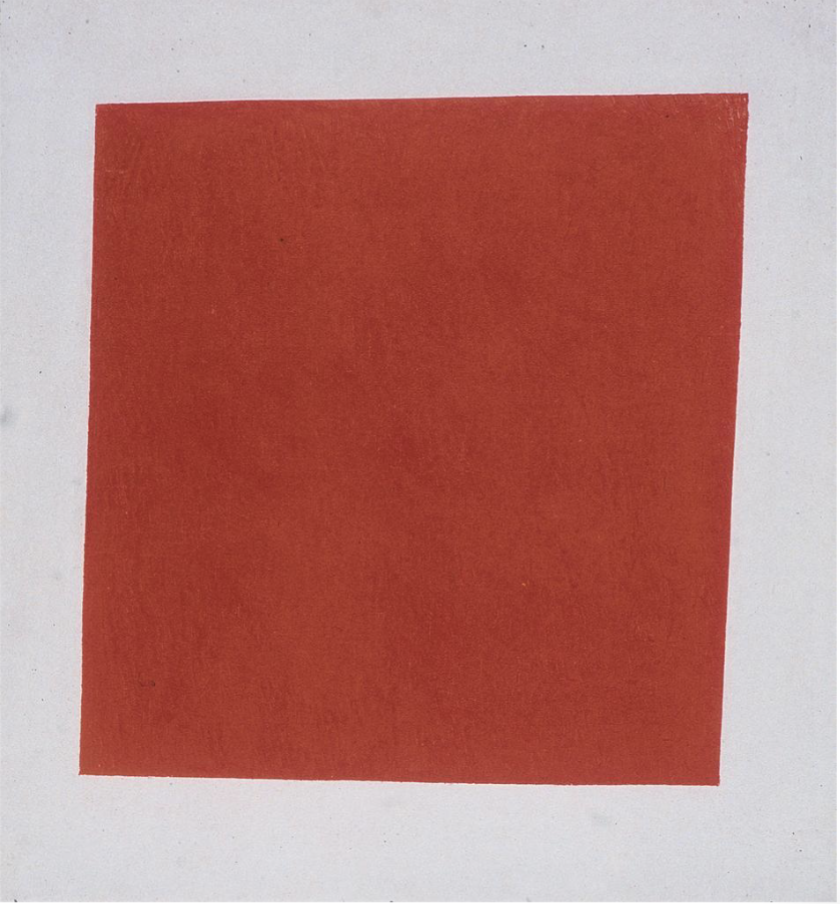
Kasimir Malevich
Suprematist Composition
1910
Abstract Artists felt the need for their work to not be seen as meaningless or as “craft/folk” art, so they often put lofty meanings to try and make their work seem very deep with lofty meanings.
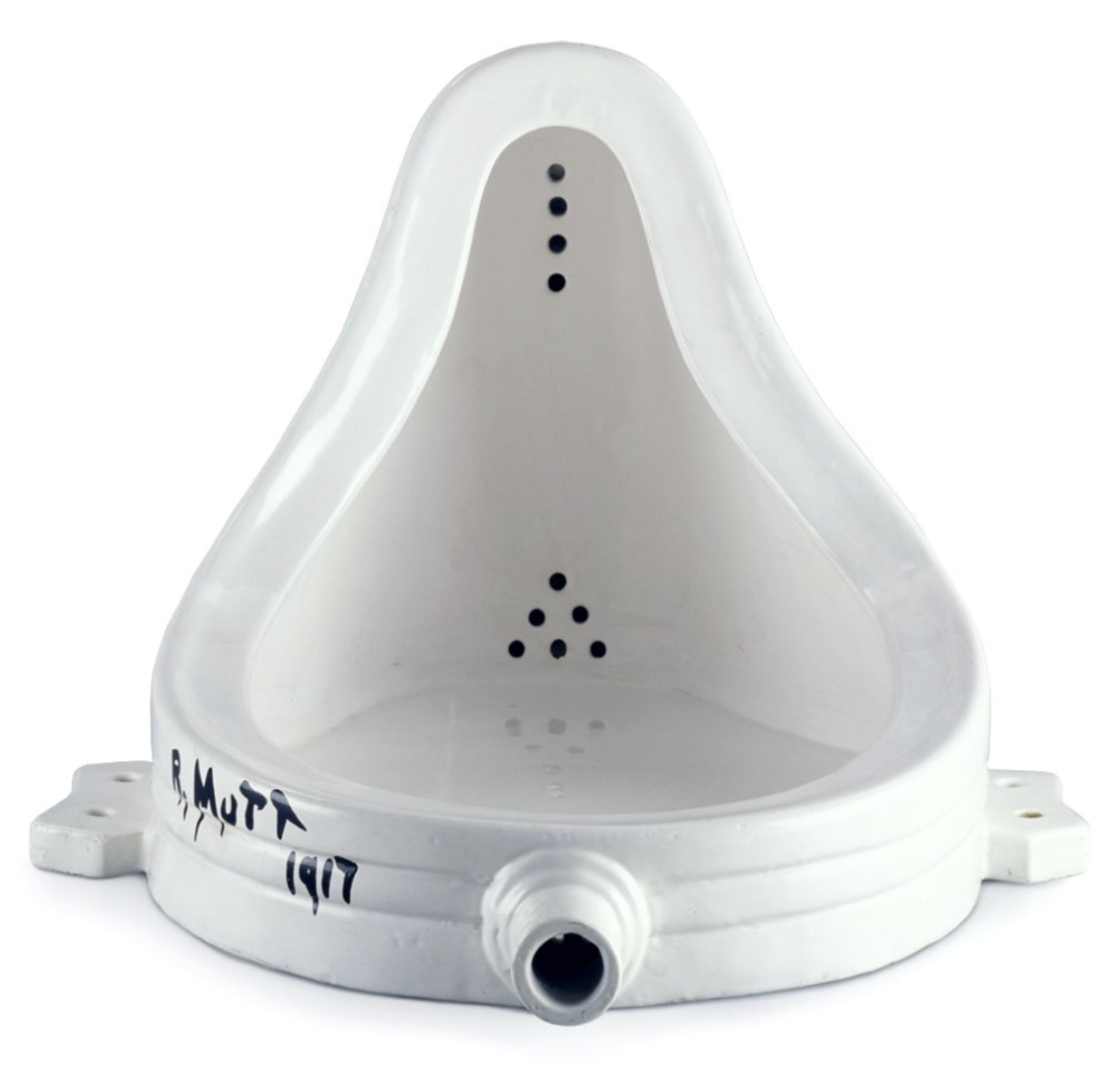
Duchamp
Fountain
1910
Emphasizing the idea of a artwork over the technical skills needed to create it, basically deskilling art-a readymade - Questioned if artwork need to have technical skill to be considered art, however he got to decide what is art because bro was white and a influential dude who had power and authority in the art world.
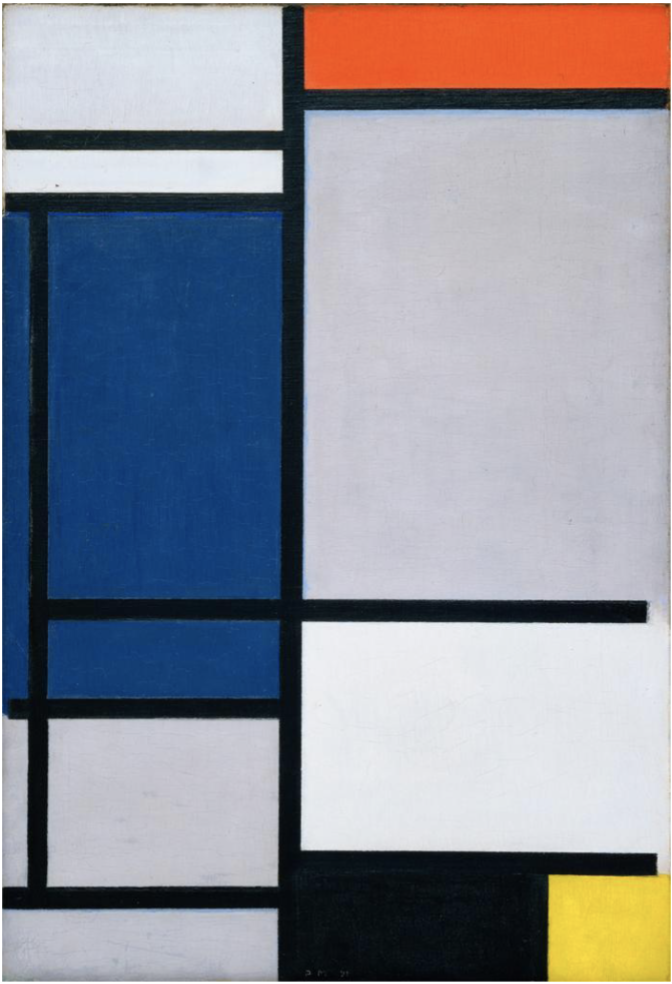
Mondrain
Compositon with red blue black yellow and gray
1920
Grid Abstract Art, one of the two popularized european abstract art techniques, and it’s seen as more masculine, rigid, cold, and rational when compared to the grid method, which is more feminine.
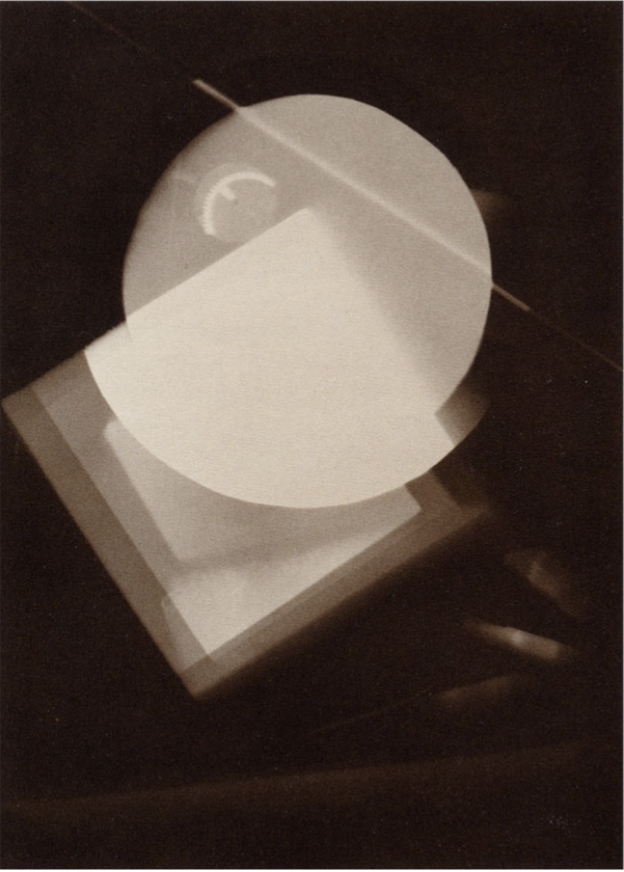
László Moholy-Nagy
Untitled
c.1920
a pioneering work in abstract photography, innovative spirit of the bauhaus movement, “new vision”

Lucia Moholy
The Bauhaus Building, Dessau
1920
Was a school where Moholy and other artist developed the “new vision” movement in its commitment to a fresh modern asthetic.
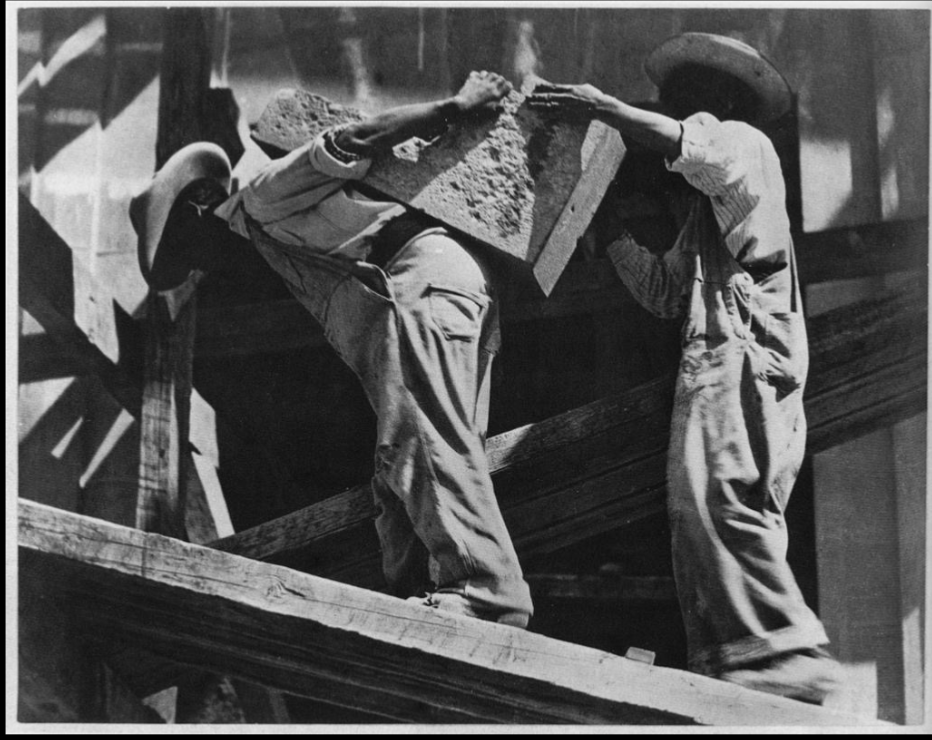
Tina Modotti
Workers, Mexico
c. 1920
captures the spirit of mexican workers in a more dignified way, putting faces to their work and number
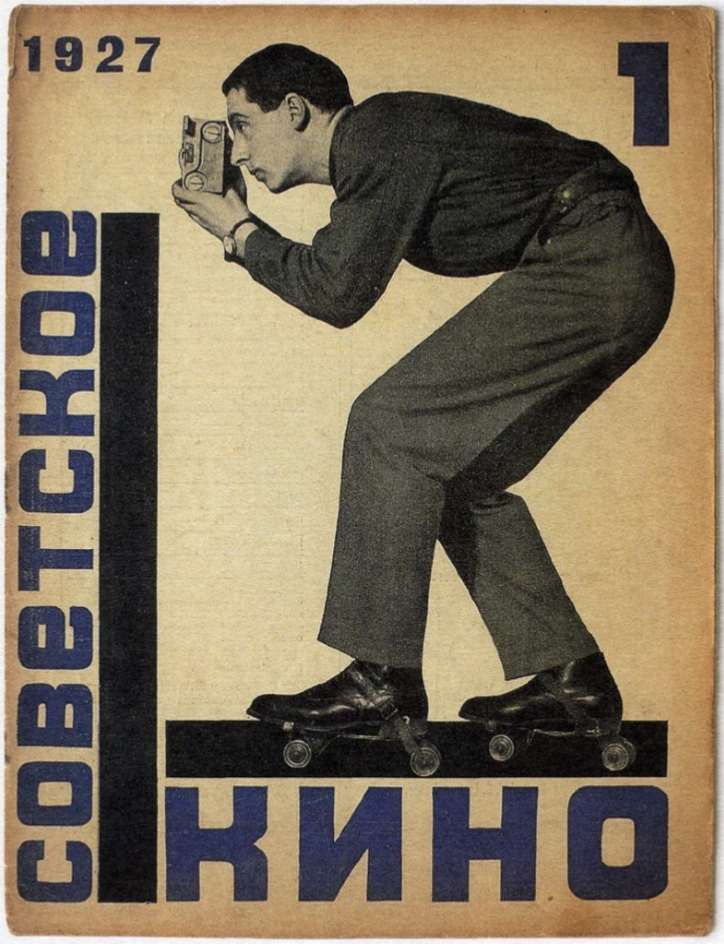
Varvara Stepanova
Cover of Soviet Cinema, Issue no. 1
1920
principles of new vision and russion contructivist movement, merging art and politics
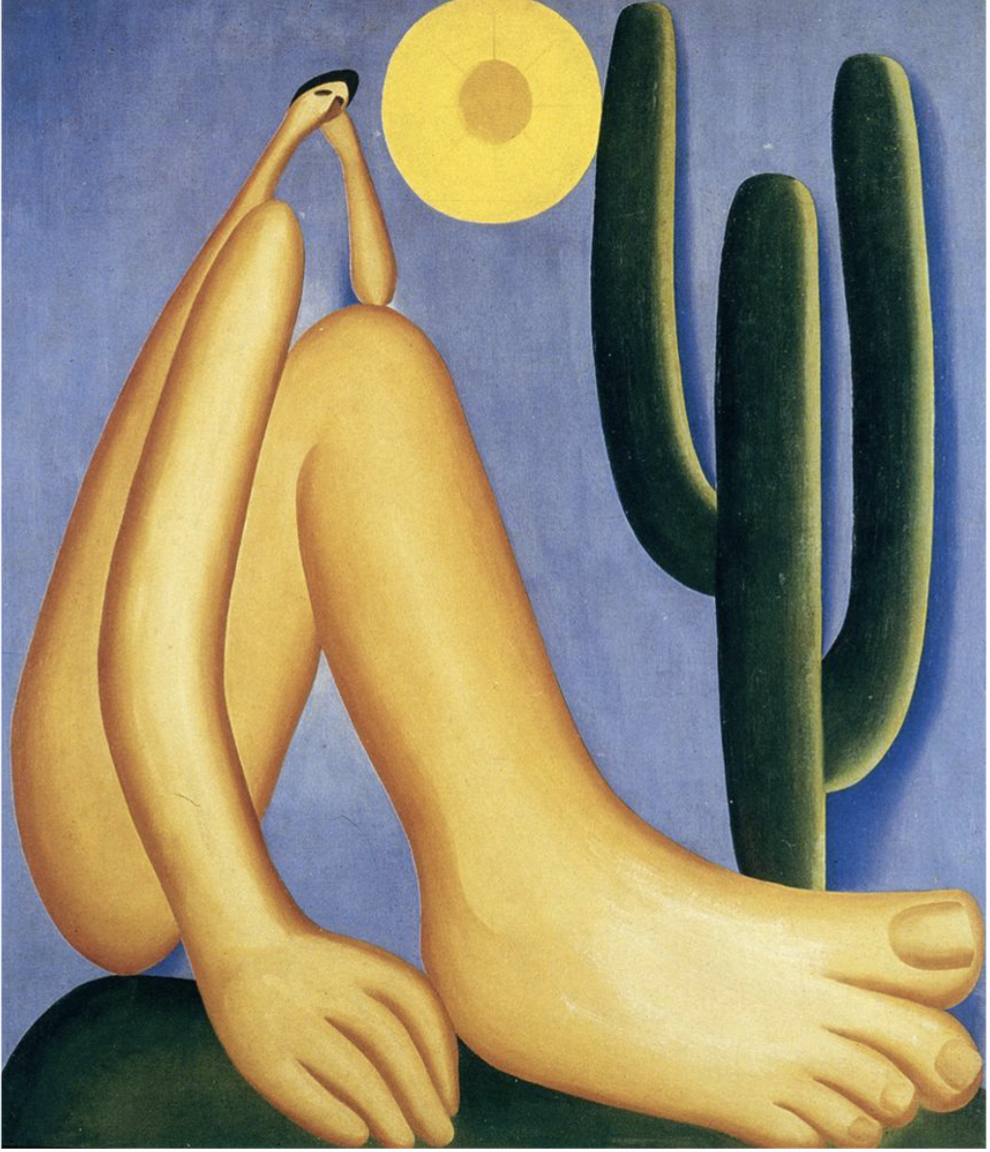
Tarsila do Amaral
Abaporu
1920
Example of an artist taking European modernism and taking the stereotypes of savagery and cannibalism and using European modernism as a building block for their own art and taking a stand against European colonization.
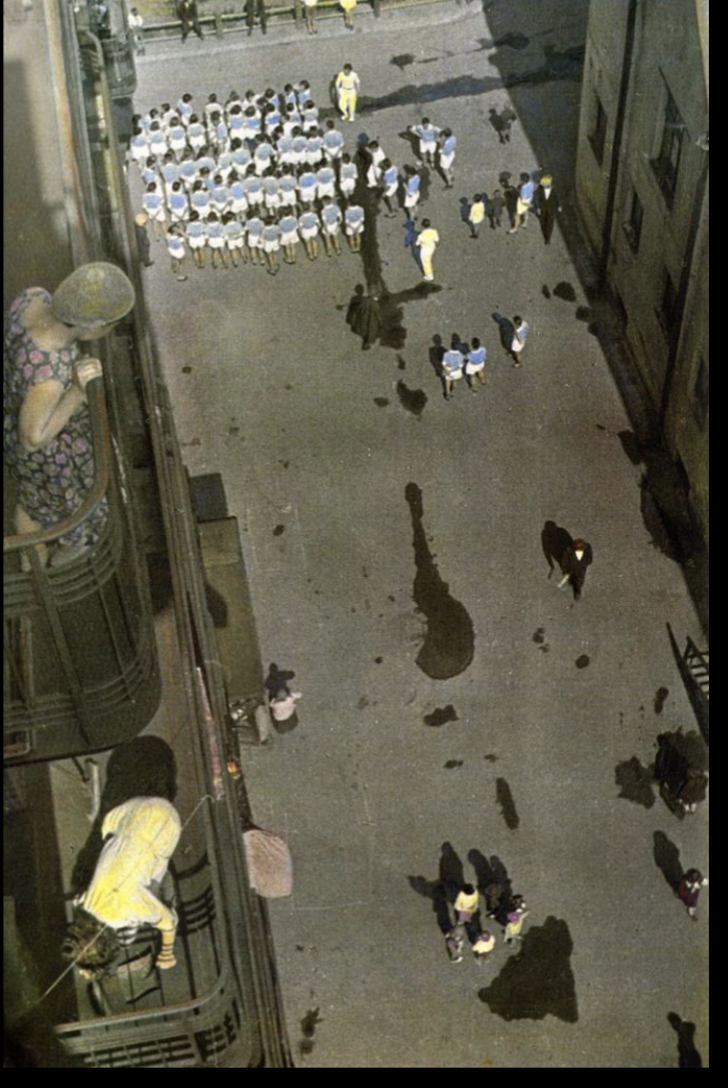
Rodchenko
Assembling for a demonstration
1920
Exembflying the greatnes of new vision and workers collectivily working together to demonstrate
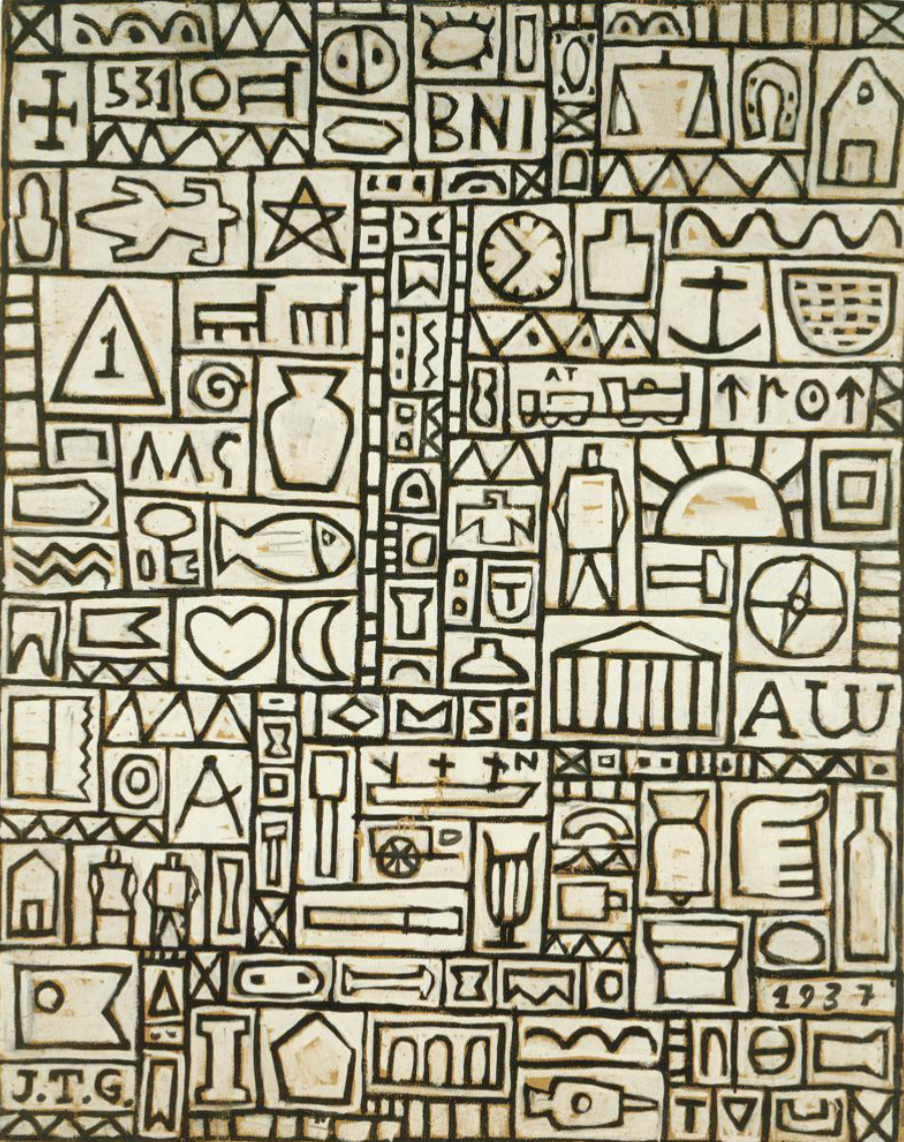
Joaquín Torres-García
Universal Composition
1930
Another artist taking European Abstract art themes (specifically the grid technique) and transforming it, making european abstract the new old (while they usually like to portray indig artists as primitive art, now the tables are turned)
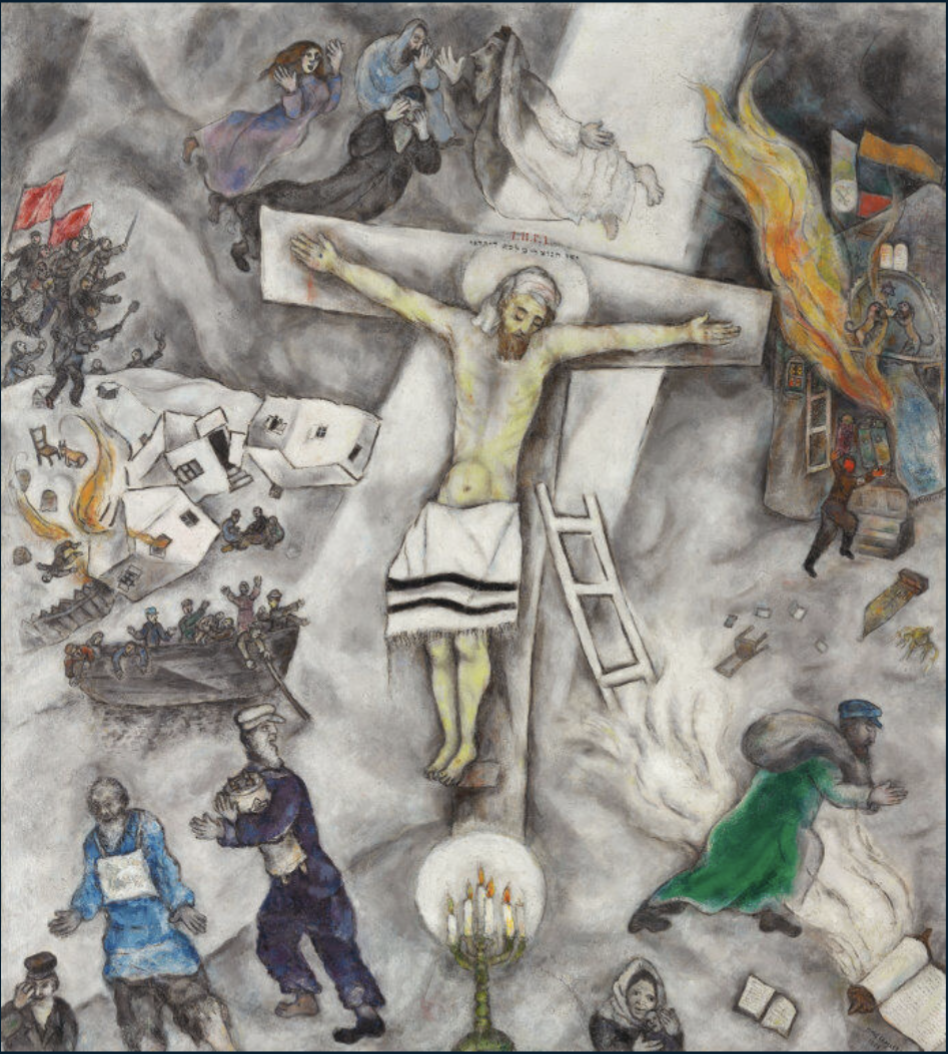
Marc Chagall
White Crucifixion
1930
Chagall portrays Jesus as a Jewish martyr, and surrounds him with imagery of crimes against the Jewish people, where he makes explicitly clear that the hatred/violence against Jewish people was religiously motivated. Parallels how Jewish people were persecuted across Europe due to their religion.
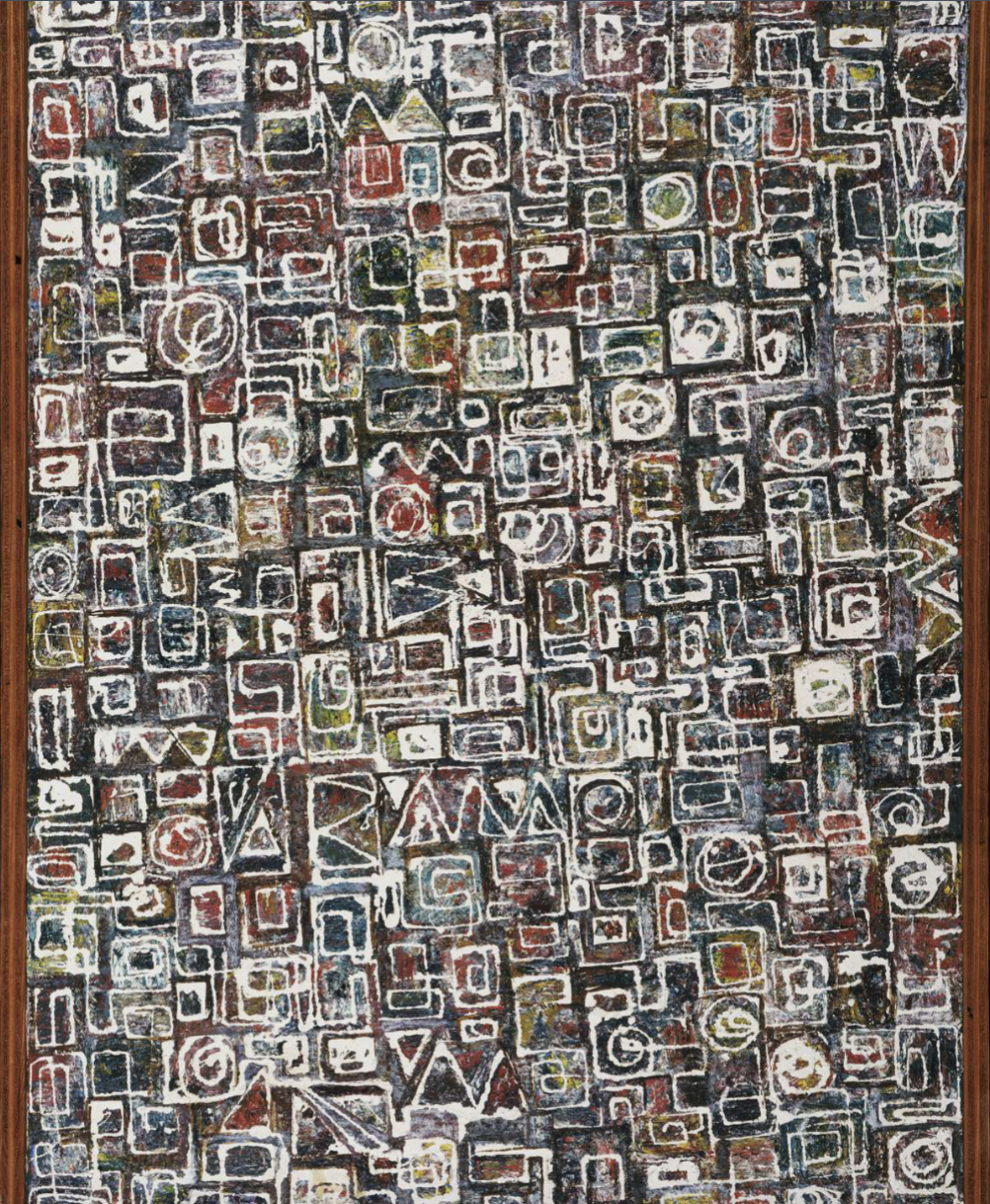
Lee Krasner
Composition
1940
Example of a Jewish artist creating abstract art! Additionally, married to stinky Pollock but no one cared much about her art since she was a woman.
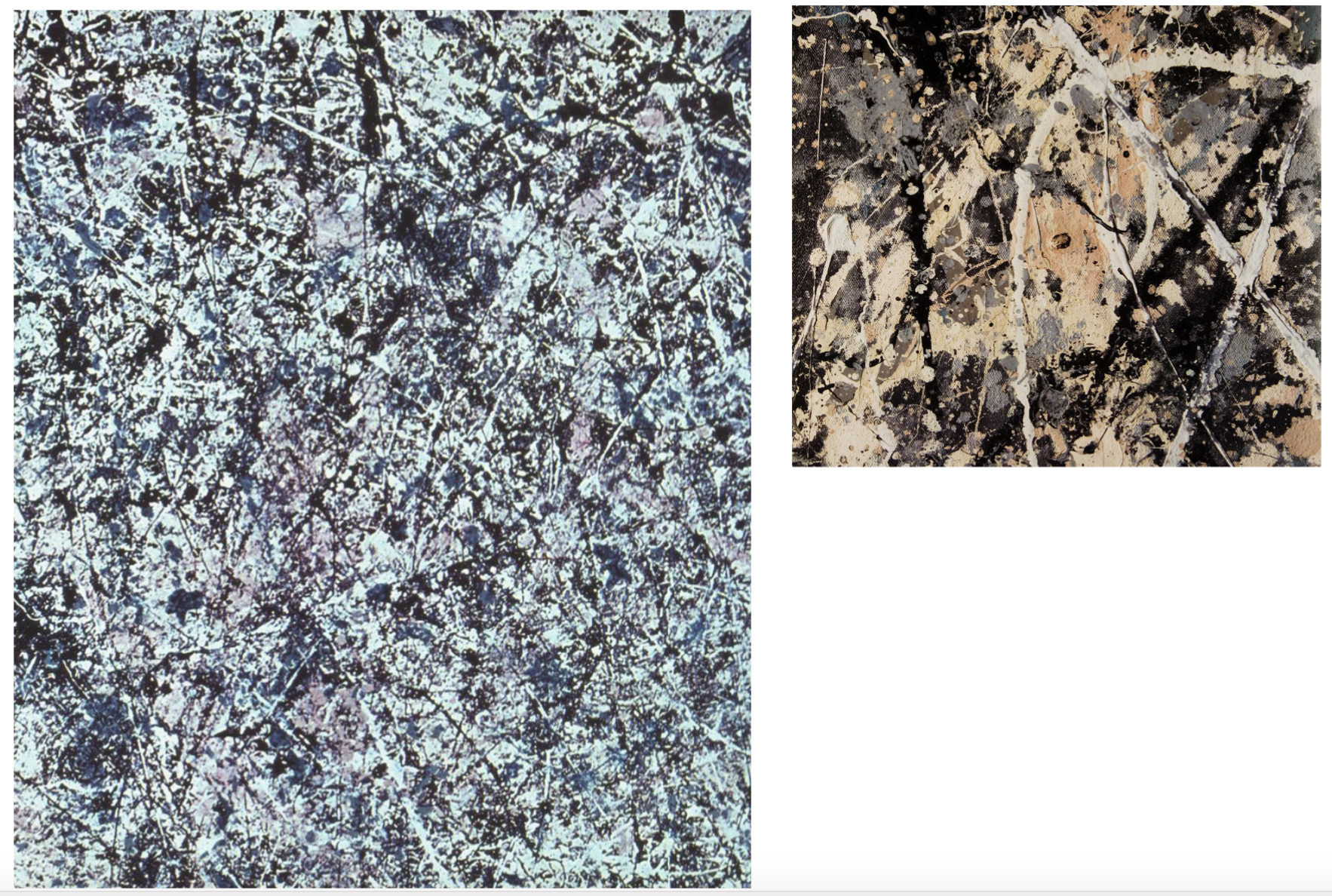
Jackson Pollock
Number 1, Lavender Mist
1950
After the war, attempting to create new beginnings, Pollock, who is labeled as one of the great post-war artists, attempts to establish his painting as an origin painting and attempts to erase what came before the war. Attempts to erase the past and create a new world (new to who?)- erases the history and violence against people
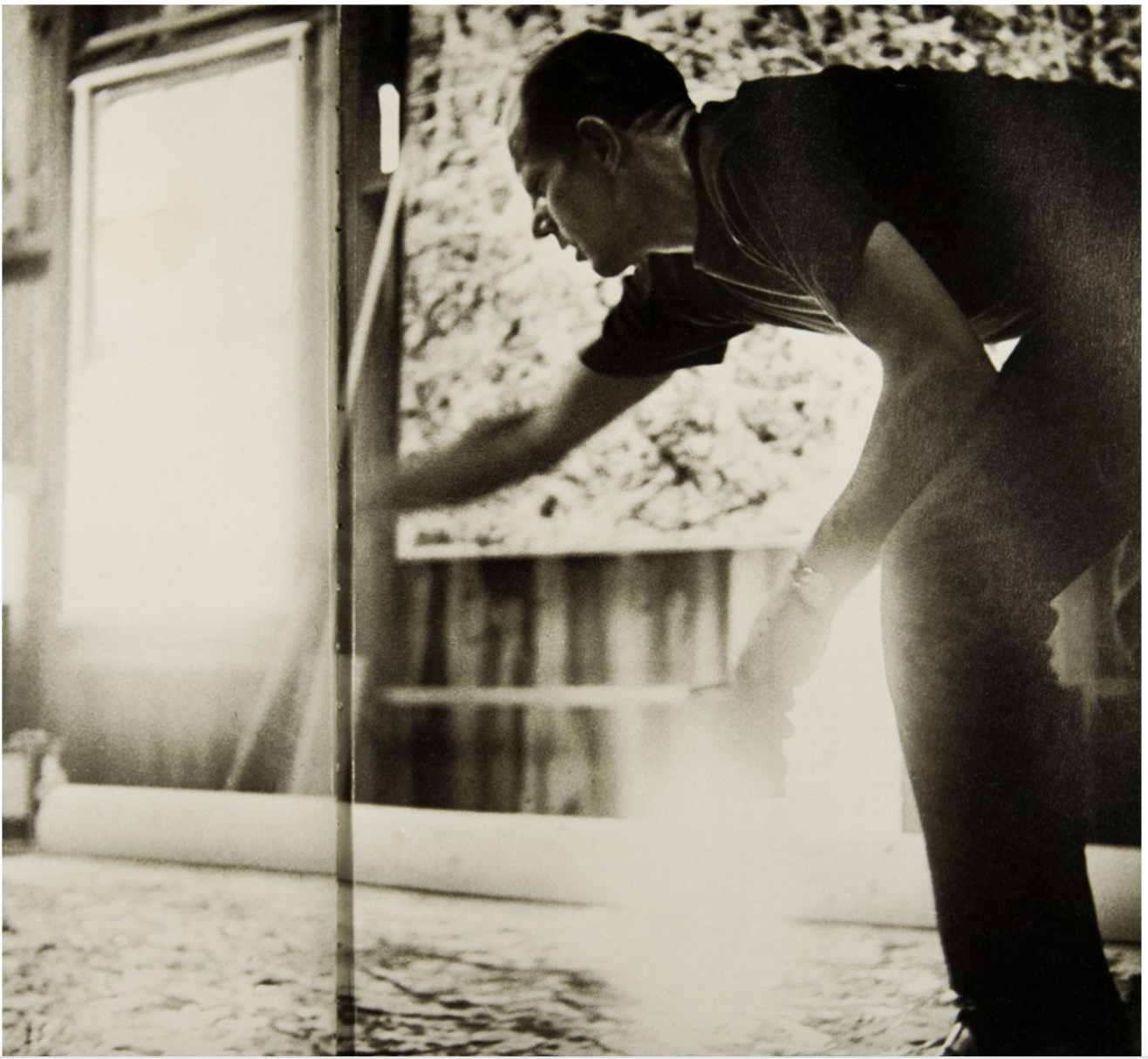
Hans Namuth
Jackson Pollock at work, East Hampton, NY
1950
Presentation of Pollock, and of artists in a god like, deity sorta way, where the artist is completely into their work and free from the concerns and realities of the world due to their studio, studio as a protection and cocoon that separates the artist from the public. Individual versus community.
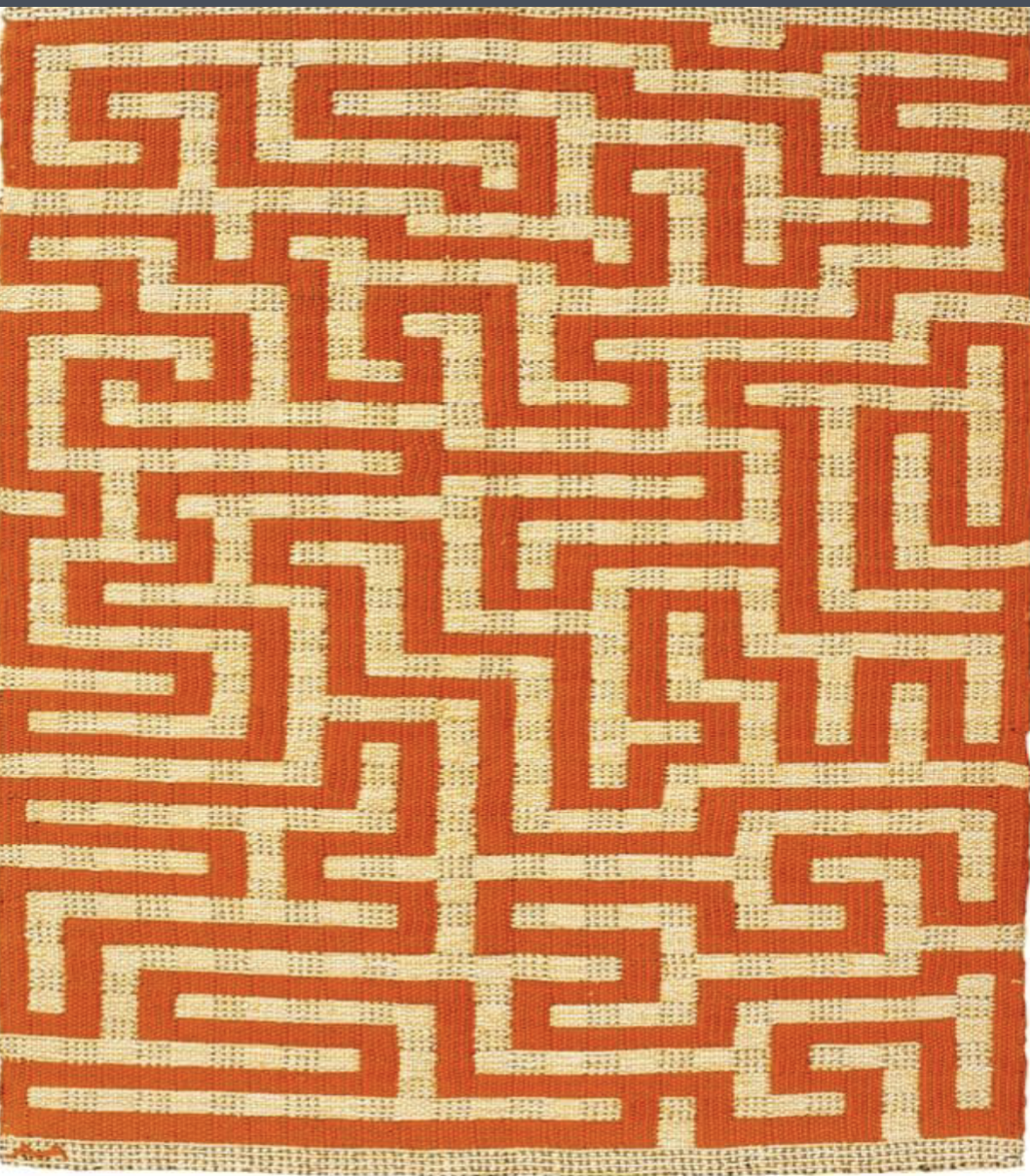
Annie Albers
Red Meander
1950
Artworks by women weren’t considered “abstract art” and rather they were seen as craft. They were labeled as textiles instead of painting, furthering emphasizing the divide between abstraction and folk, textile work and declaring that abstraction was better and more advanced.
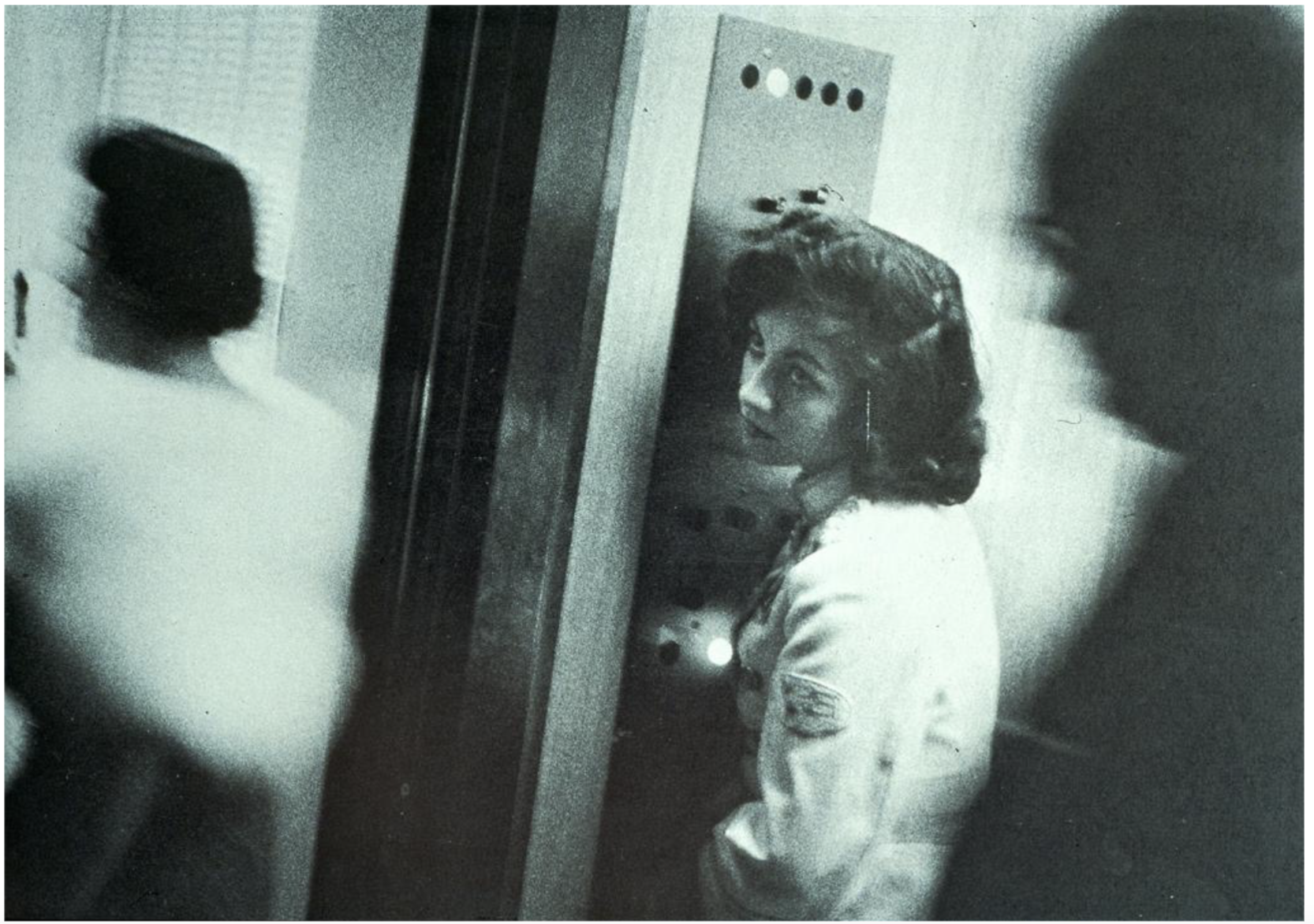
Robert Frank
Elevator
1950
“Othering” of Americans, that captured an outsider’s view of America, it was heavily criticized by Americans due to the unfavorable depiction of their country - though they do and assume things about other countries due to shitty Beato photographers
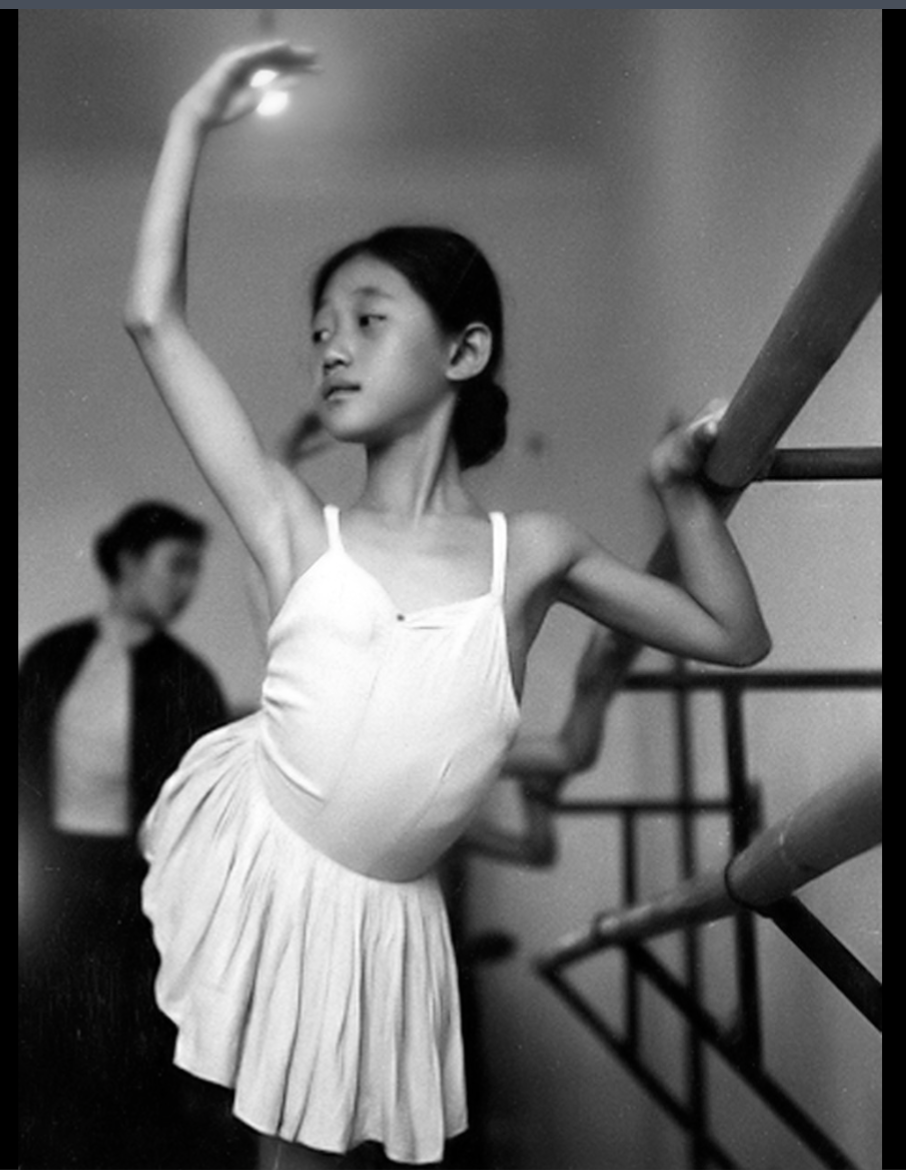
Chris Marker
“Korean Ballerina” From Koreans
1950
A very different view of North Korea, showing a more private, intimate, everyday life. Humanization of North Korean citizens.
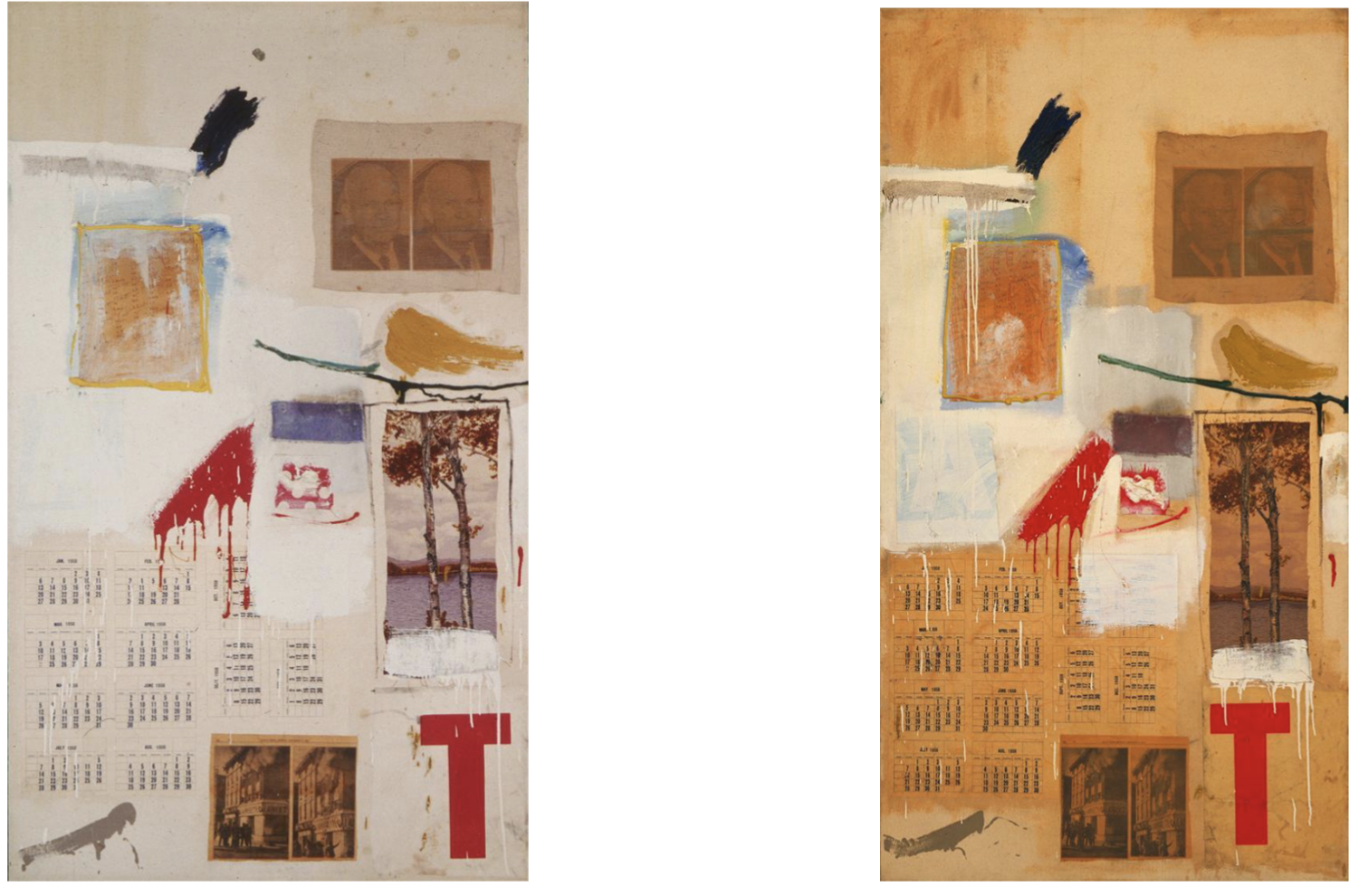
Robert Rauschenberg
Factum I & Factum II
1950
A critique of expressionism as a myth..copies of one another however the expression of emotion are different. How could we be feeling the same things if we look at these two differently moody paintings?
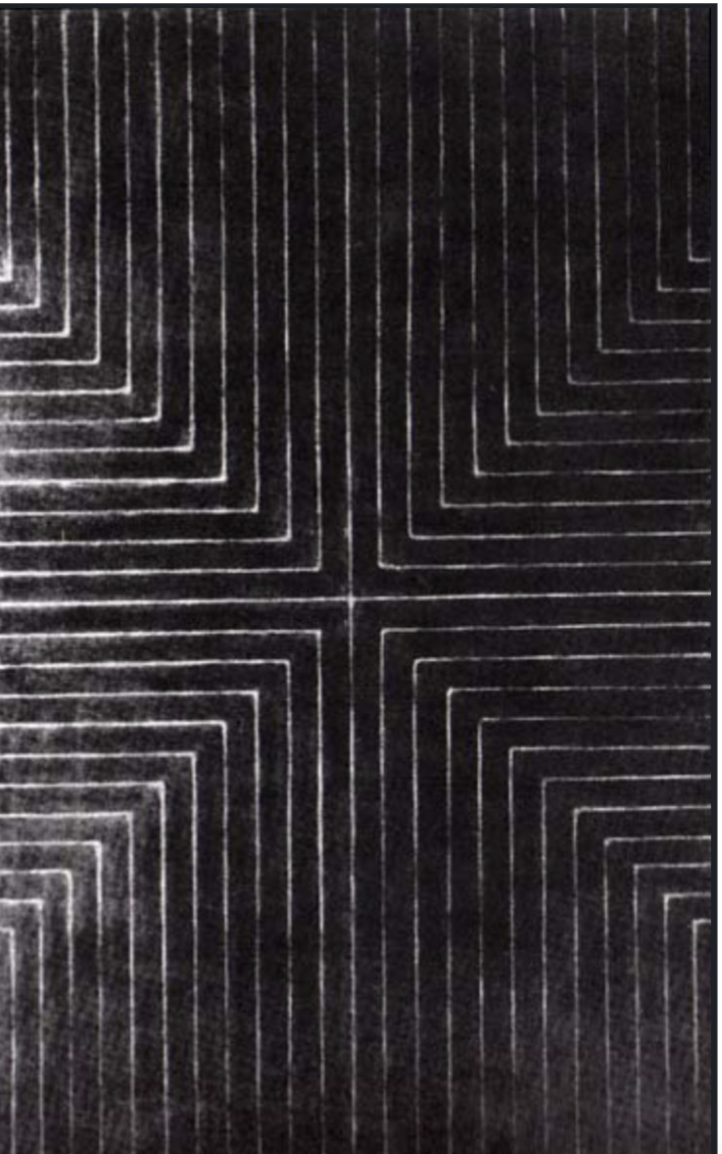
Frank Stella
Die Fahne Hoch
1950
The origin painting of minimalism (FUCK MINIMALISM)
European abstract art, no expressionism, it has a rigid shape and simple design. There is a visceral power and violence in the piece which is a critique of facism and expressionism(?)
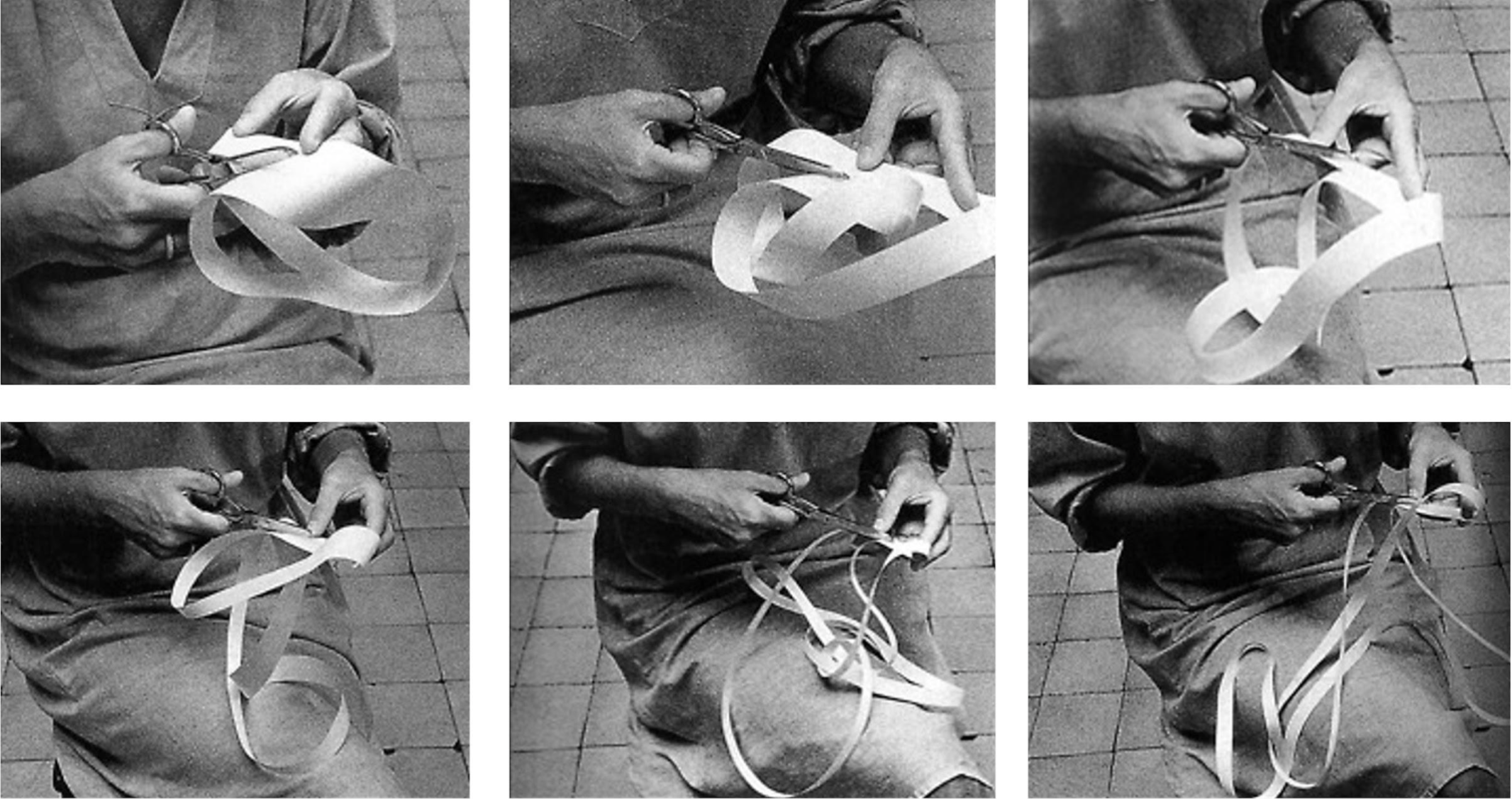
Lygia Clark
Walking
1960
Shows the connection between art and the human body and how we interact/manipulate it. Shows a turn in the art world where there is emphasis on the process and participation.
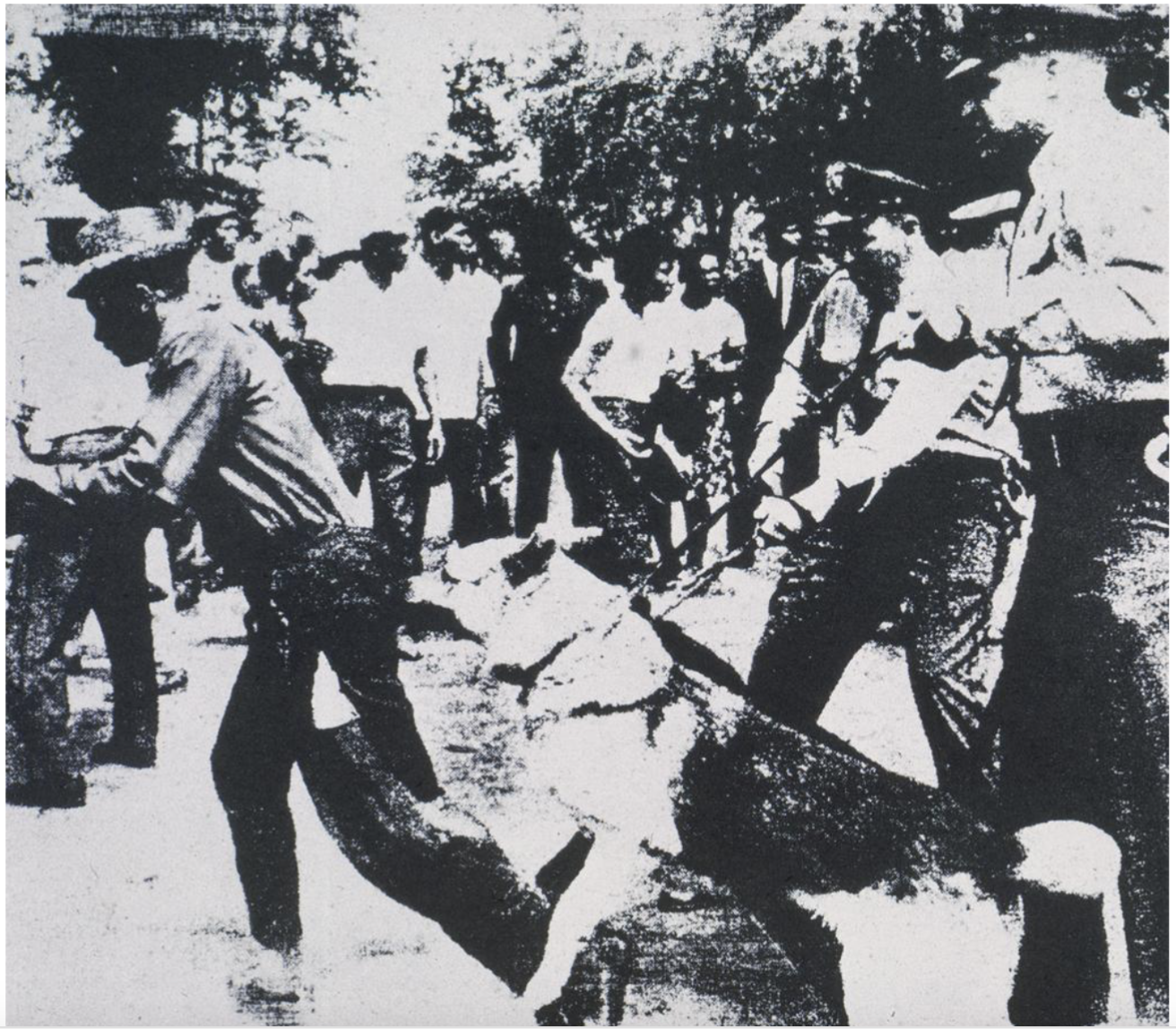
Andy Warhol
Race Riot
1960
Exposes the surface equality in America and how though it presents itself as perfect and pure, under the guise of democracy it masks violence, and the presentation of it as equal hides the structural racism that many people in America face 🙁 critique of American Propoganda
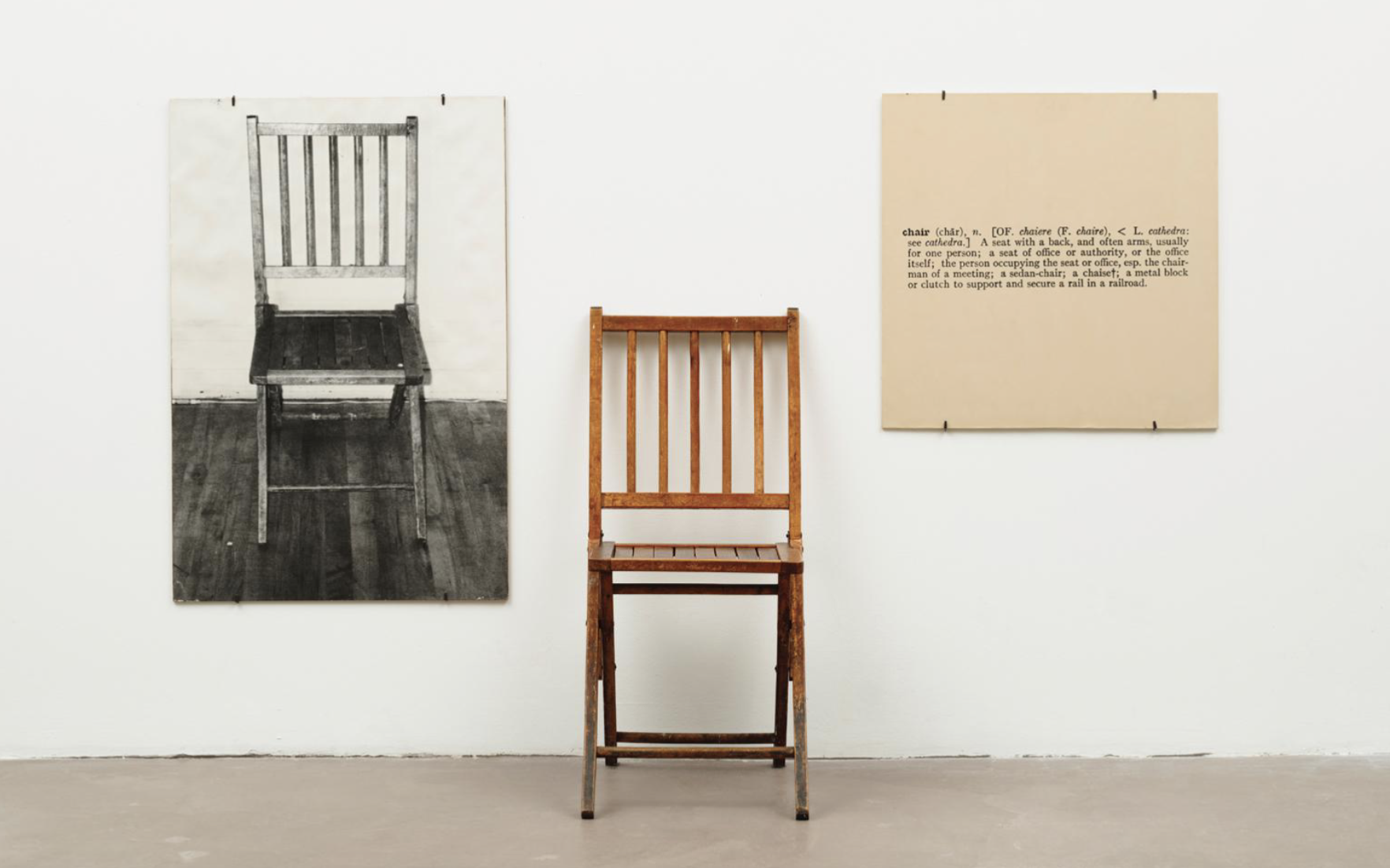
Joseph Kosuth
One and Three Chairs
1960
Questioning and testing the limits between language and meaning. Is language arbitrary way to describe something? Shows how an artwork can embody the idea of an object even if it’s not specifically physically present.

Cecilia Vicuña
Guardian
1960
Found objects from people throwing stuff away and destroying nature - repurposing those things and responding to nature, resisting colonization and capitalism and the destruction of nature
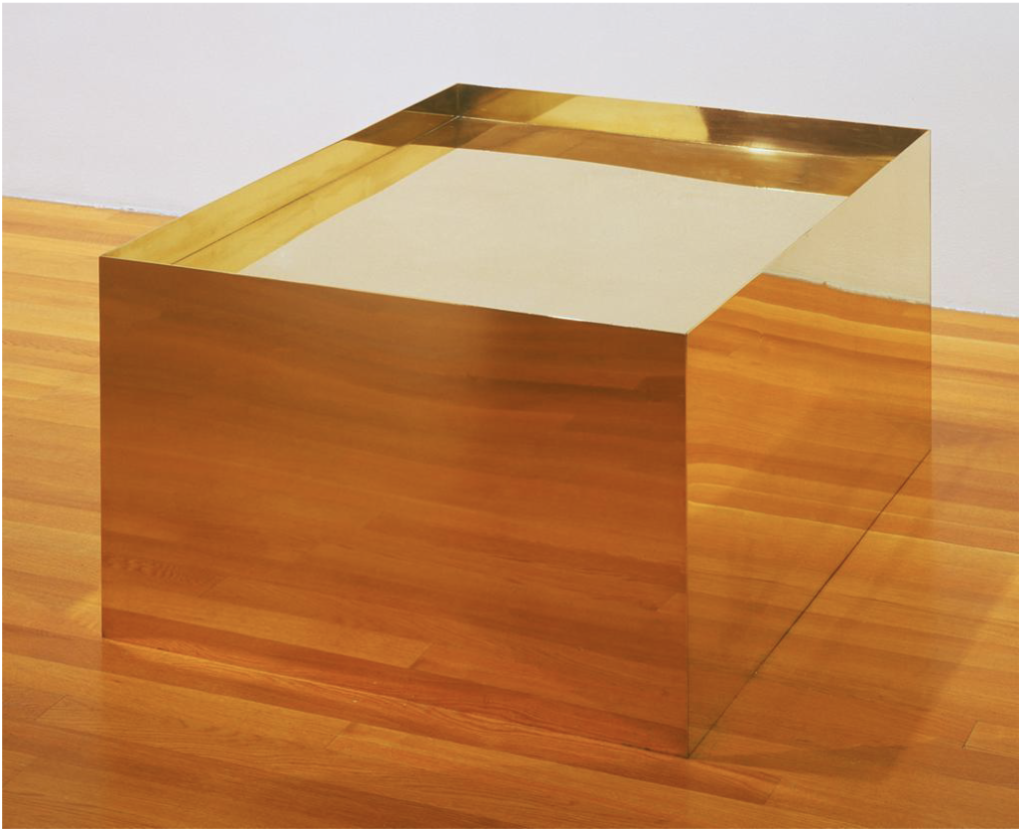
Donald Judd
Untitled
1960
The simplification of a form and idea to the very minimum. Gets rid of meaning and just becomes an object.
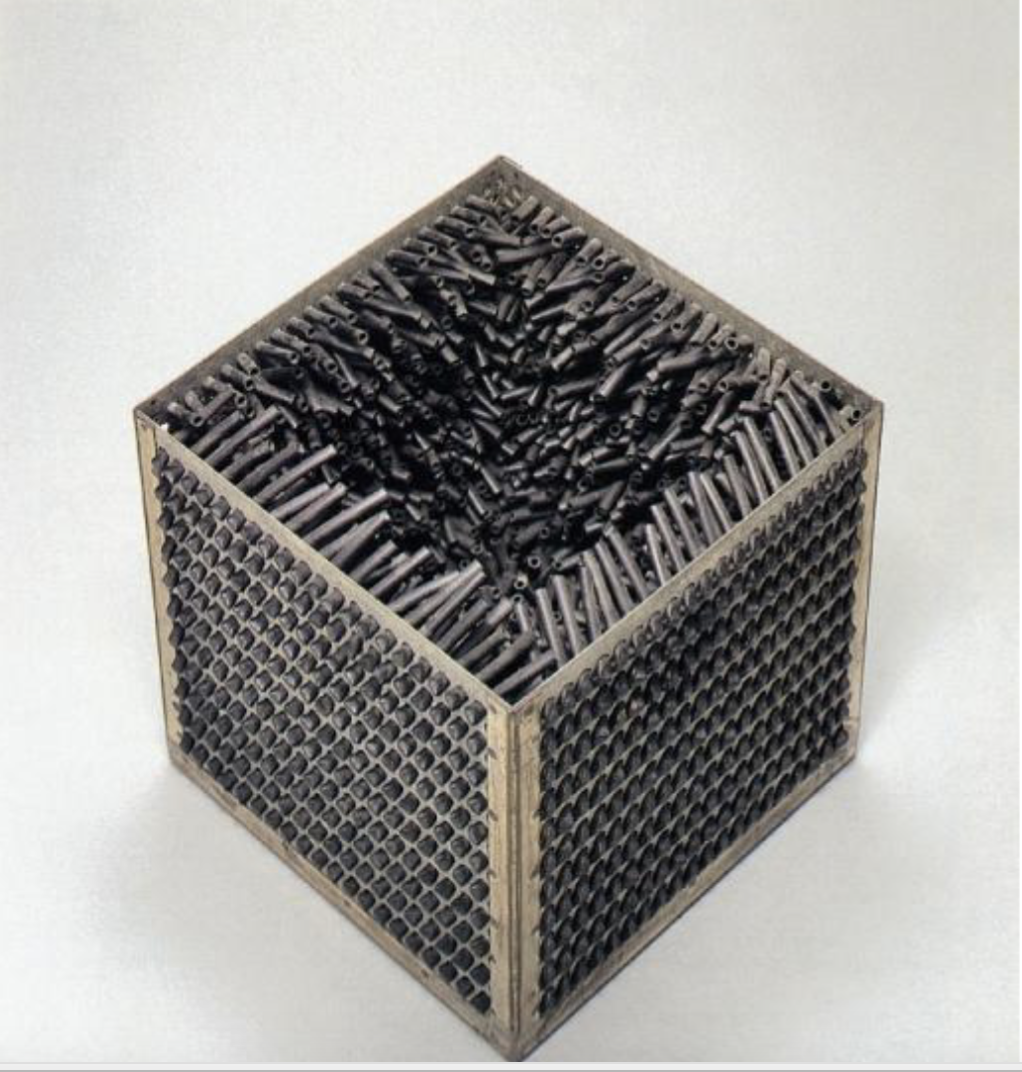
Eva Hesse
Accession iv
1960
Post Minimalism art which used unconventional materials and still maintained the basic geometric form. Additionally, the interior of the work was more complex and textured, which contrasted against anti-expressionist minimalist art. suggests the inside of bodies
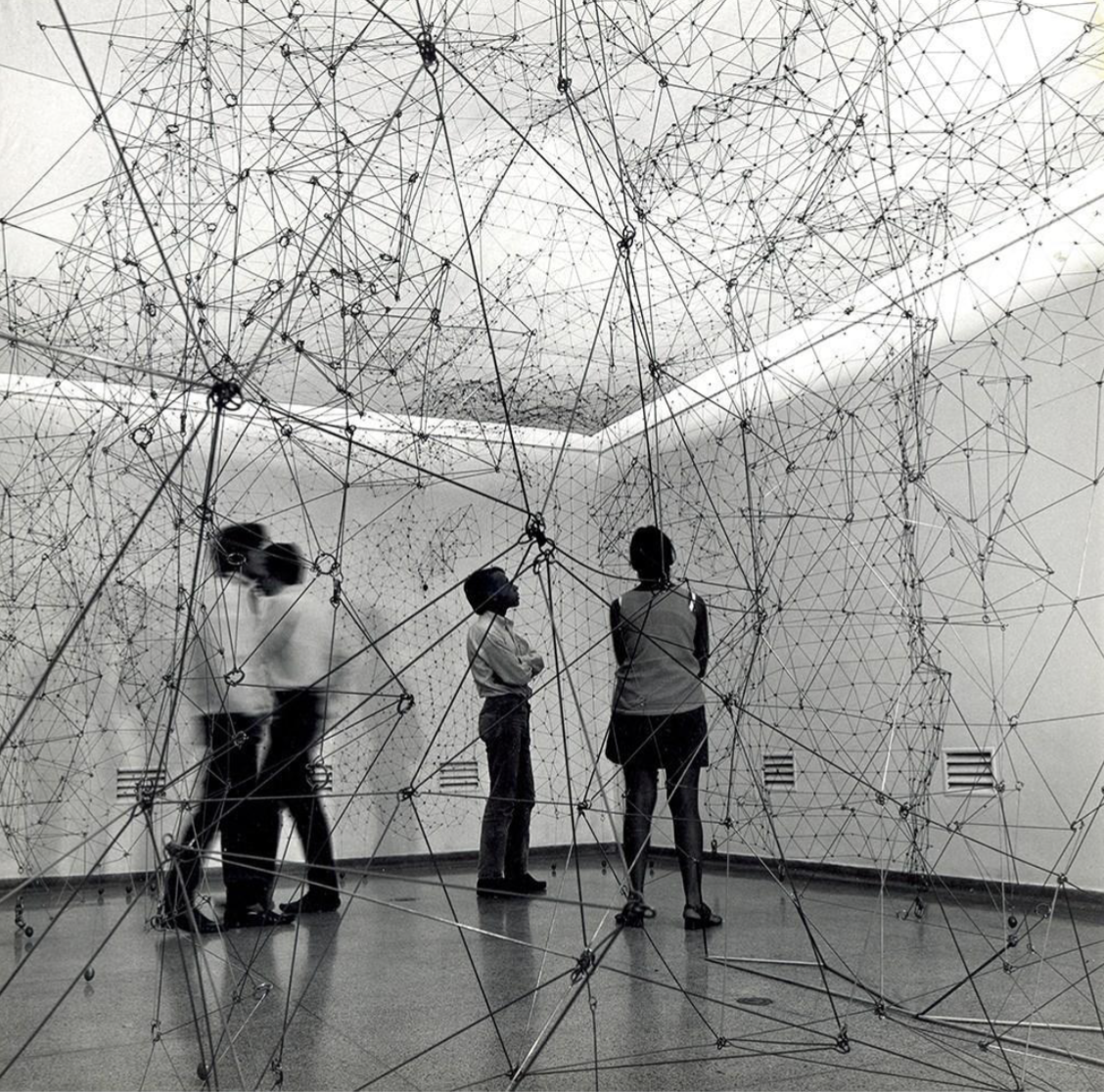
Gego
Gran reticulárea
1960
Dissolving the boundary between line, art, space and the viewer, immersing them in an experience rather than a viewable artwork. Rhizome
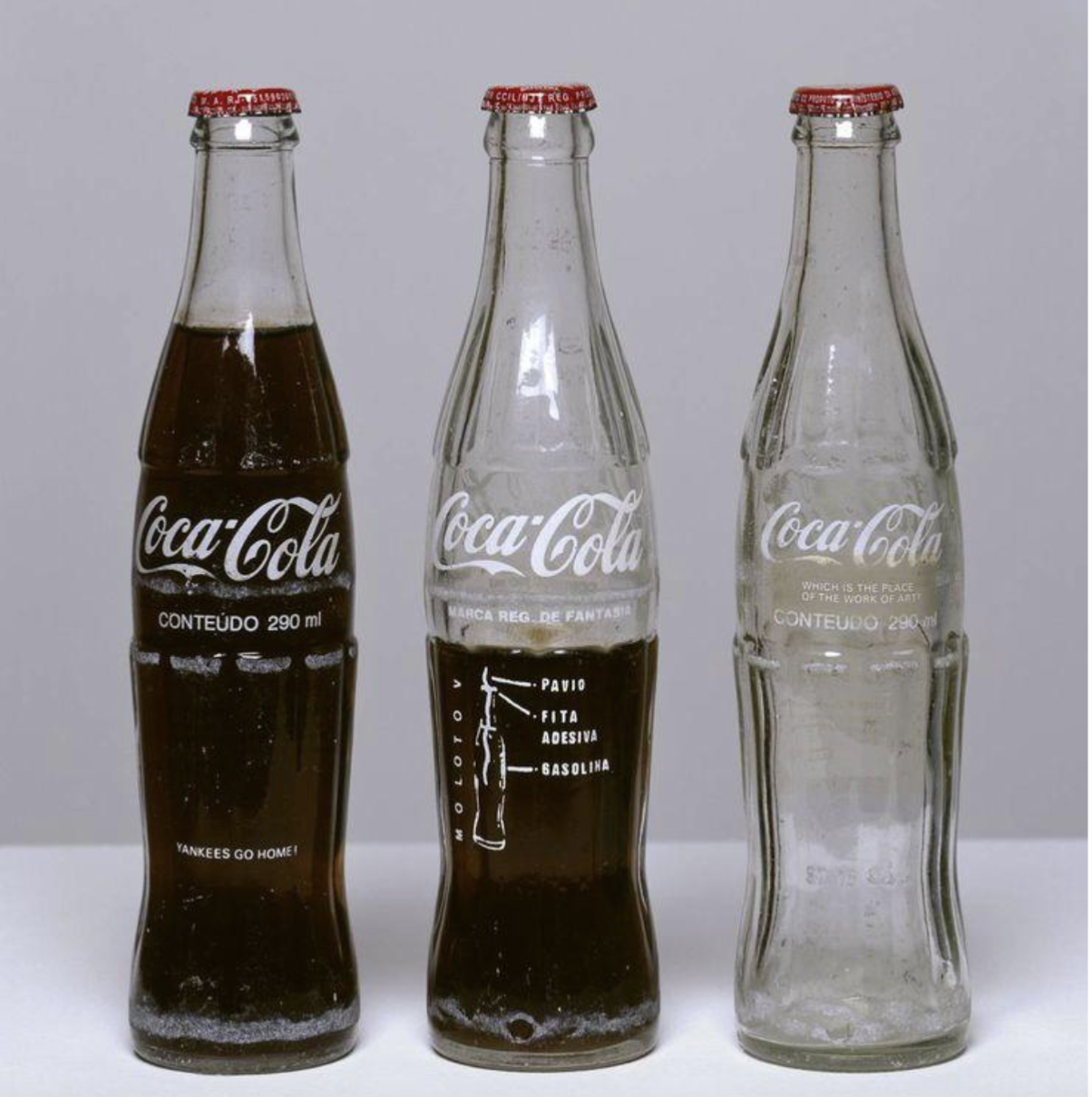
Cildo Meireles
Insertions into Ideological Circuits
1970
Relies of the flow of commodities under capitalism and how any commodity can be a way to fight against capitalism and the system, utilizing anonymous messaging to dislodge the public from complacency
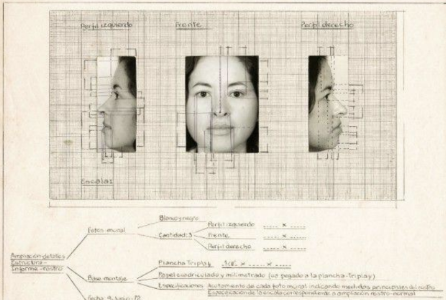
Teresa Burga
Self-Portrait. Structure. Report, 9/6/1972
1970
Shows how people are abstracted and can be deconstructed into numbers - violence of abstraction , conceptual self portrait
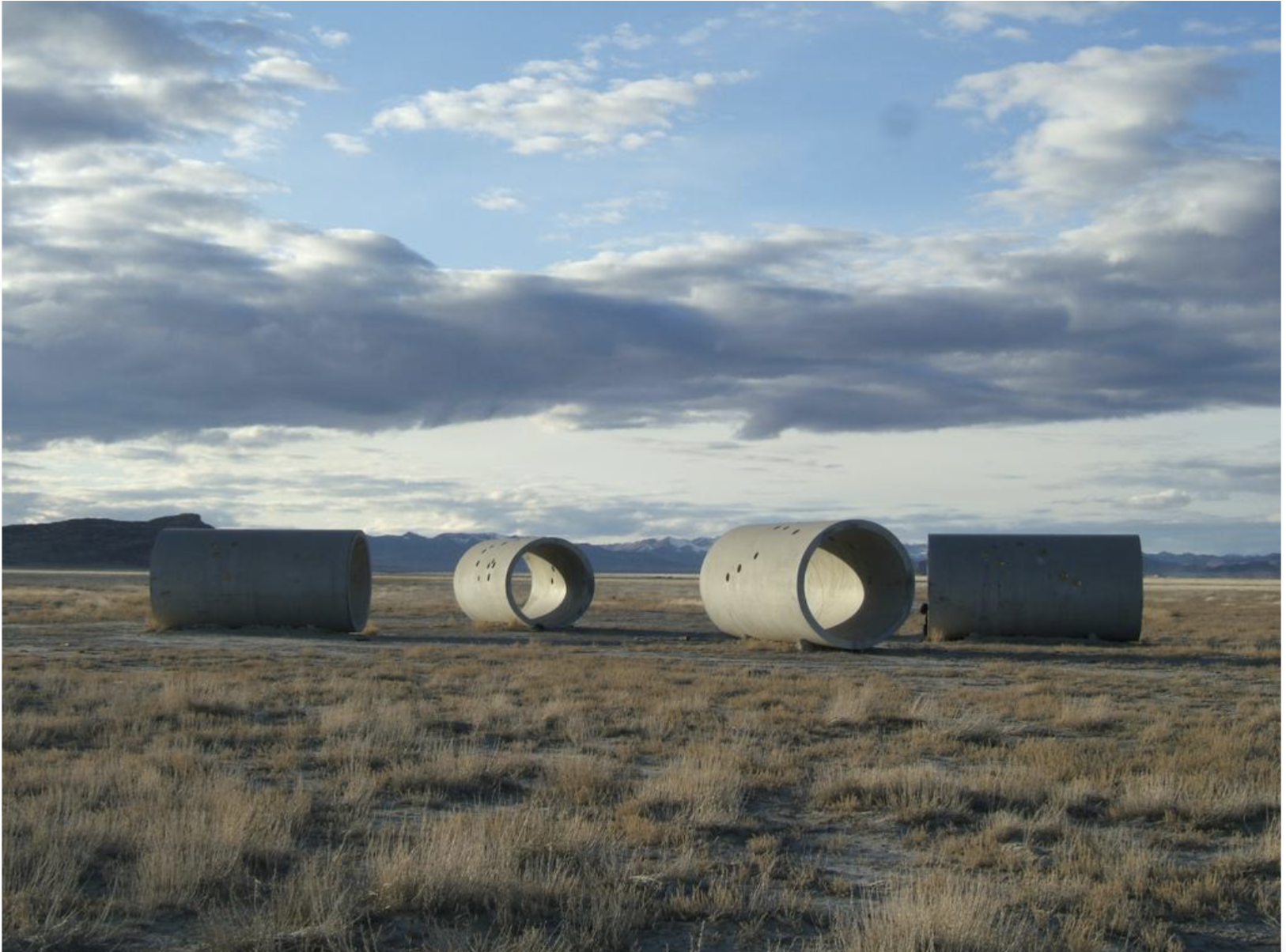
Nancy Holt
Sun Tunnels
1970
A very site specific piece that orients us to the movement of the sun and earth and makes us aware of our surroundings and place in the world. Making art that can’t be put into a white walled gallery
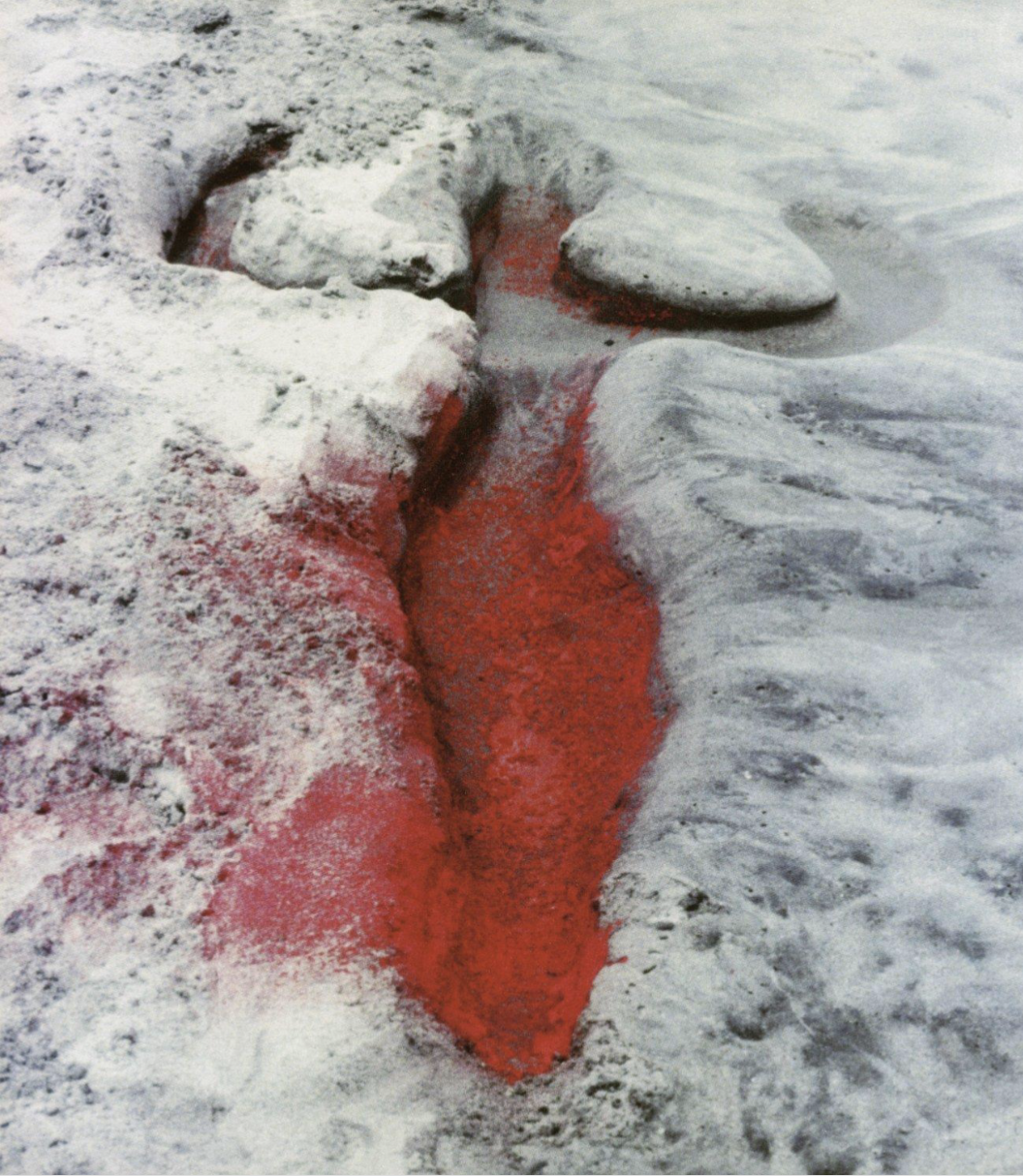
Mendieta
Silhouette series
1970
Relationship between femininity and the earth, reclaiming nature and taking up an impermanent space in the land, leaving an imprint behind.
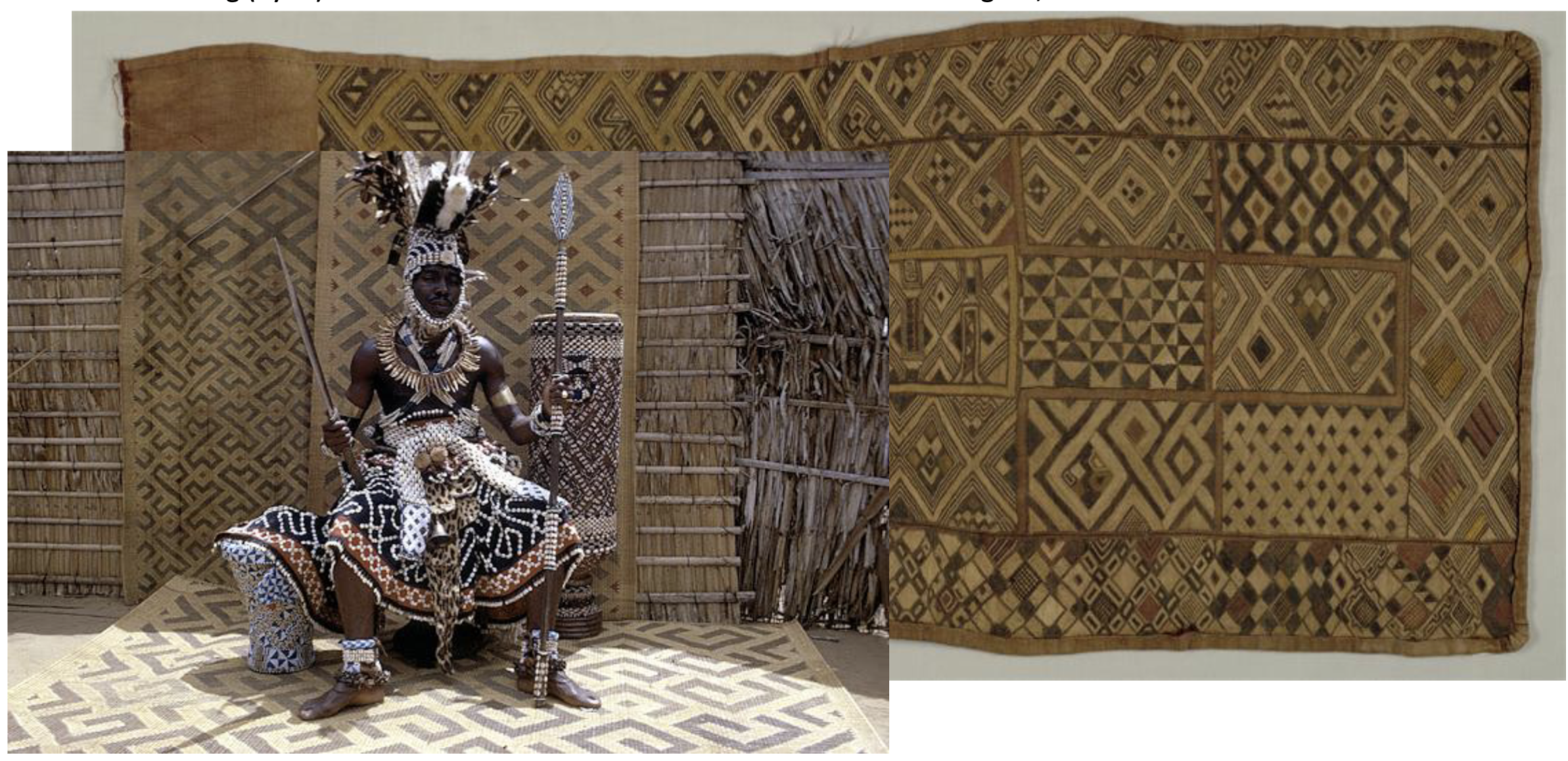
Artist once known
Kuba cloth
early 20th century
Abstraction influence from African art was happening at the same time as the colonization and cultural erasure. Abstraction is playing with this same dynamic through erasing the African influence on abstract art, while proclaiming that African art was primitive, and Abstract was the new “modern” while they pulled lots of elements from African art into abstract art. Hypocrisy!

Agnes Denes
Wheatfield - A Confrontation
1980
Turned a dumping site into 2 acres of wheat, “How should we use the land in a valuable way?” food that can be used to feed people, we should be using land as something productive and purposeful and reimagine its purpose.
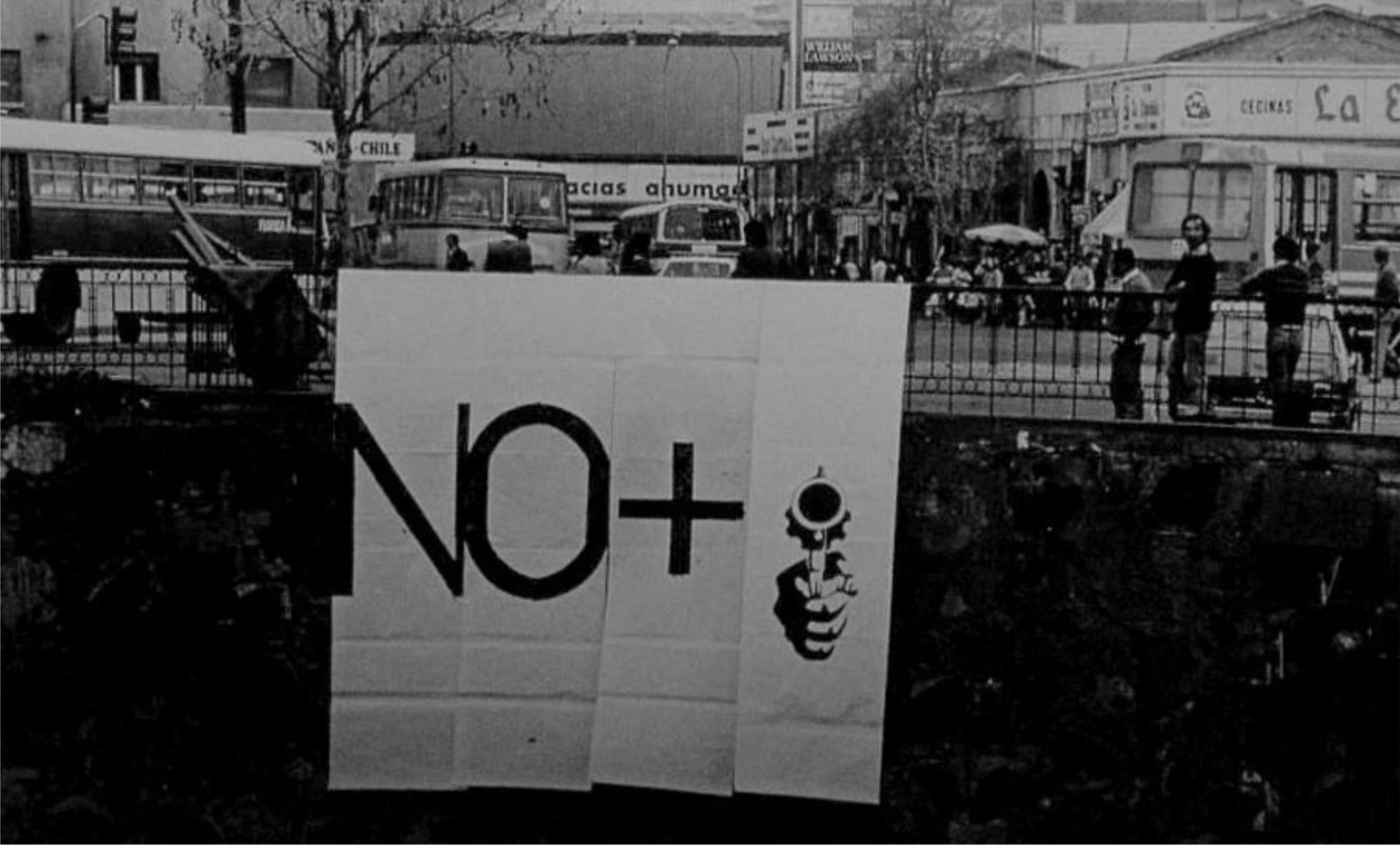
CADA
No +
1980–present
Protests dictatorship and utilizes art as a tool for resistance.
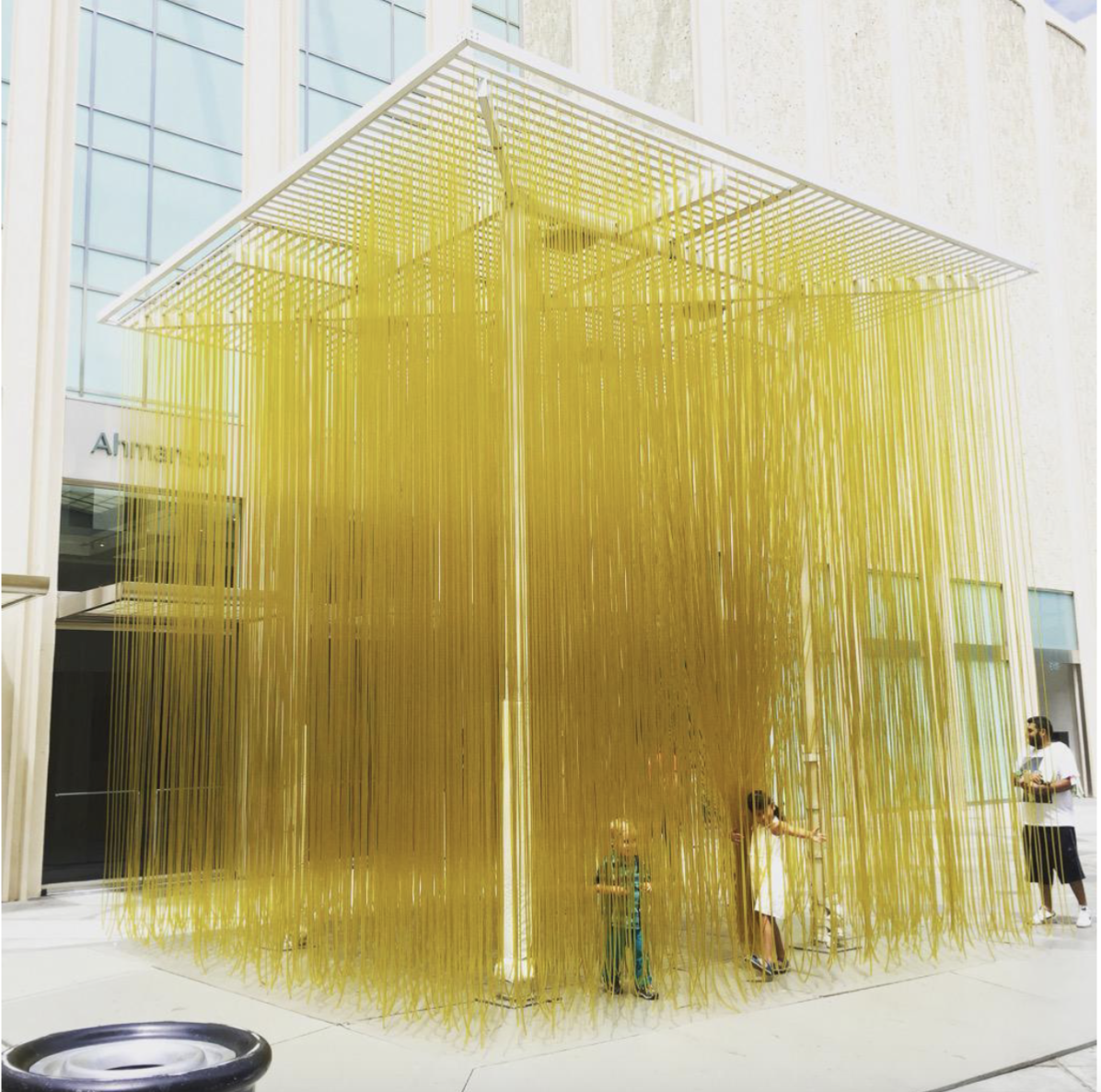
Jesús Soto
Penetrable
1990
Shows a visual and physical deconstruction of the human body, where the body is abstracted into different parts.Makes the audience question if they are part of the art/ experience.
Dog are you art?
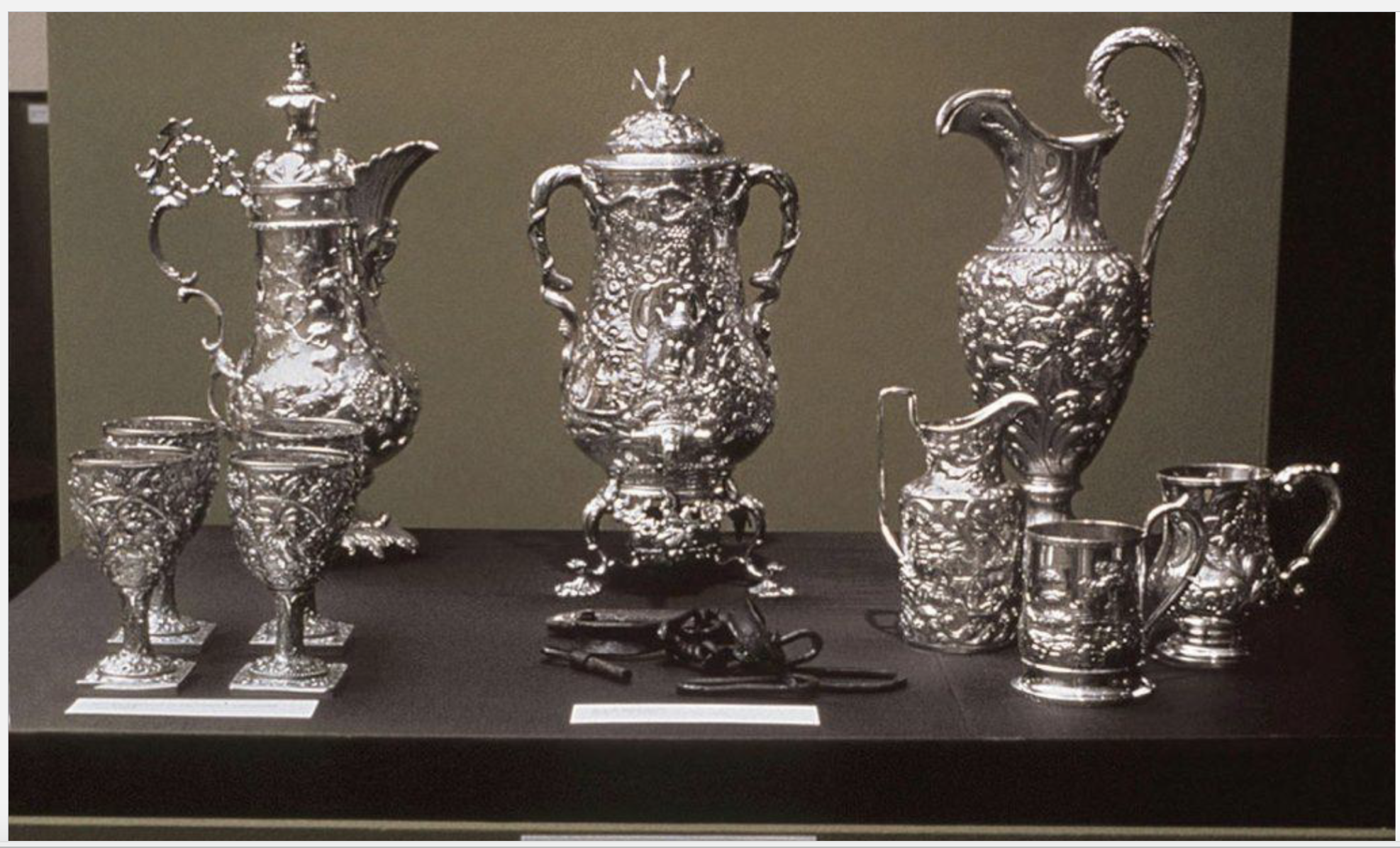
Fred Wilson
Mining the Museum
1990
Examines the material relationship between a pair of slave shackles and fancy silver jugs, where these objects are inseparable from one another. Wealth is only enabled through the physical labor and suffering of others.
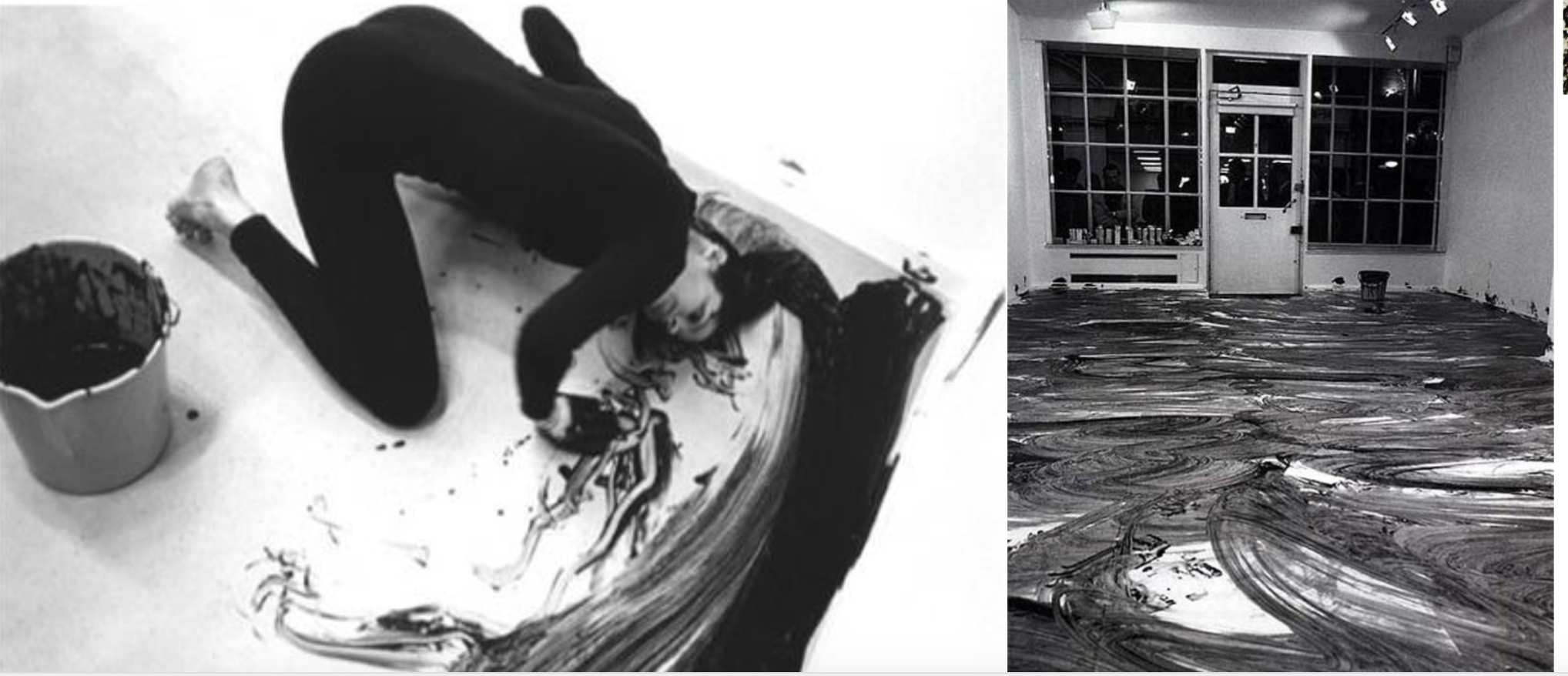
antoni
Loving care
1990
Antoni mops the floor with her hair in a gallery space, reclaiming that space for women artists (mopping ties with femininity and cleanliness), rejection of the ideas of femininity and cleanliness, using the body as a tool, dirtying the white gallery
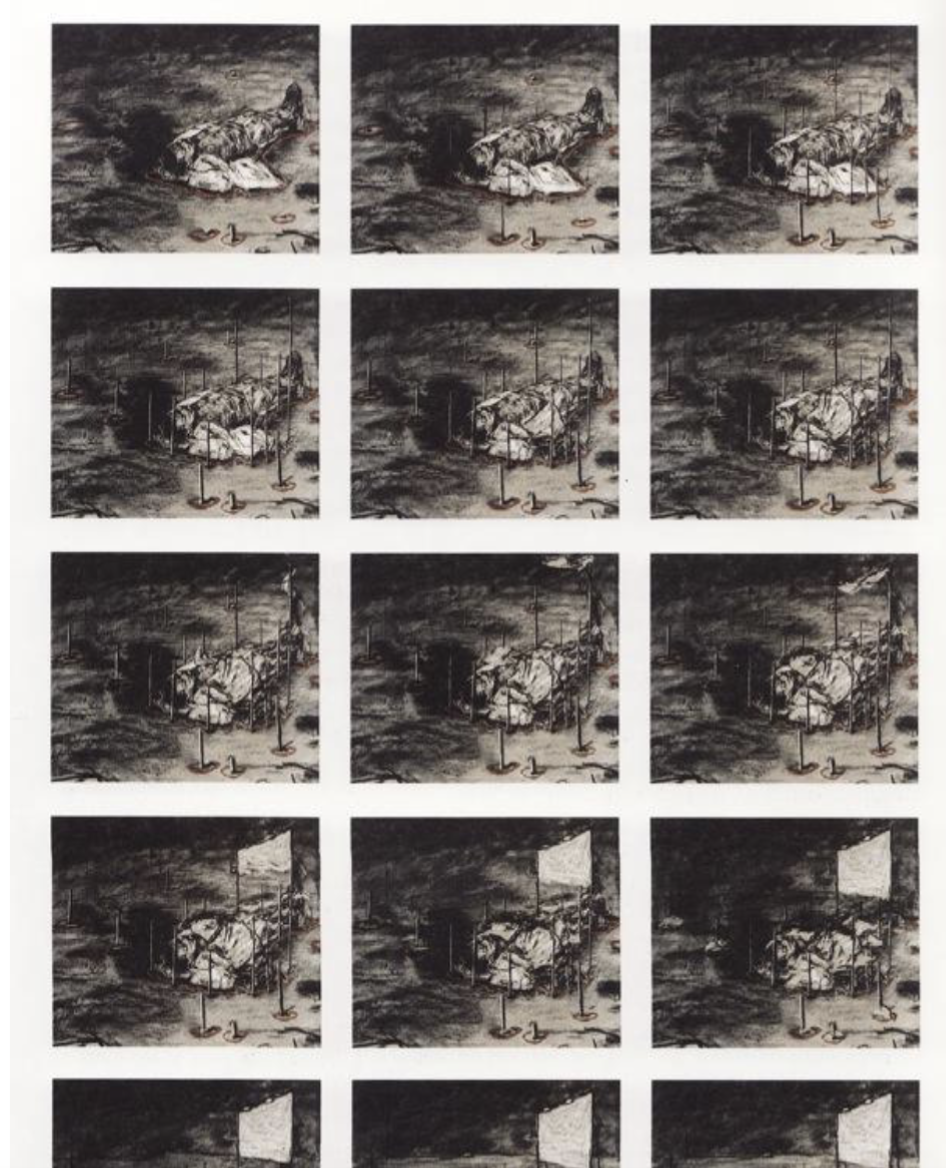
kentridge
stills from felix in exile
1990
Erasing as forgetting, post war state setup, erasing blank state, the forgetful nature of the human mind, the landscape eats away the subjects consuming and destroying them, but also erases violence- humans tend to forget the violence of war

Carrie Mae Weems
From From Here I Saw What Happened and I Cried
1990
Critique of how history appropriates people and the system continuously reinforces that stereotype and appropriation in order to keep people divided. White America’s depiction of black people, and how it was supposed to reinforce the racist ideas about black inferiority. These photographs were taken as if they were specimen rather than people (naked, no stories, etc)
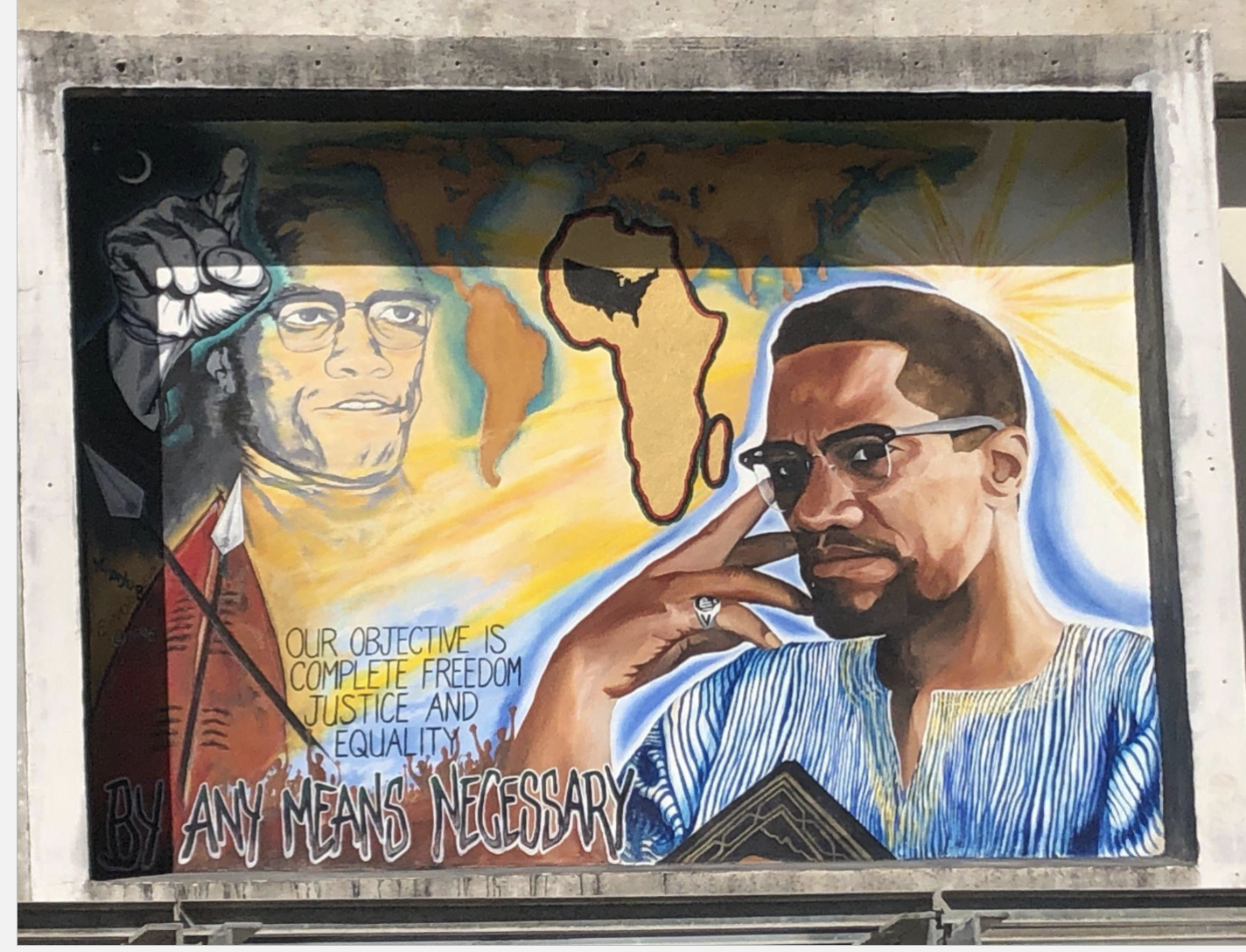
Norberg and Ayubbi
Malcolm X Mural, by any means nessarey
1990
Honors Malcolm X / Malcolm Little who was an African American human rights activist leader during the civil rights movement
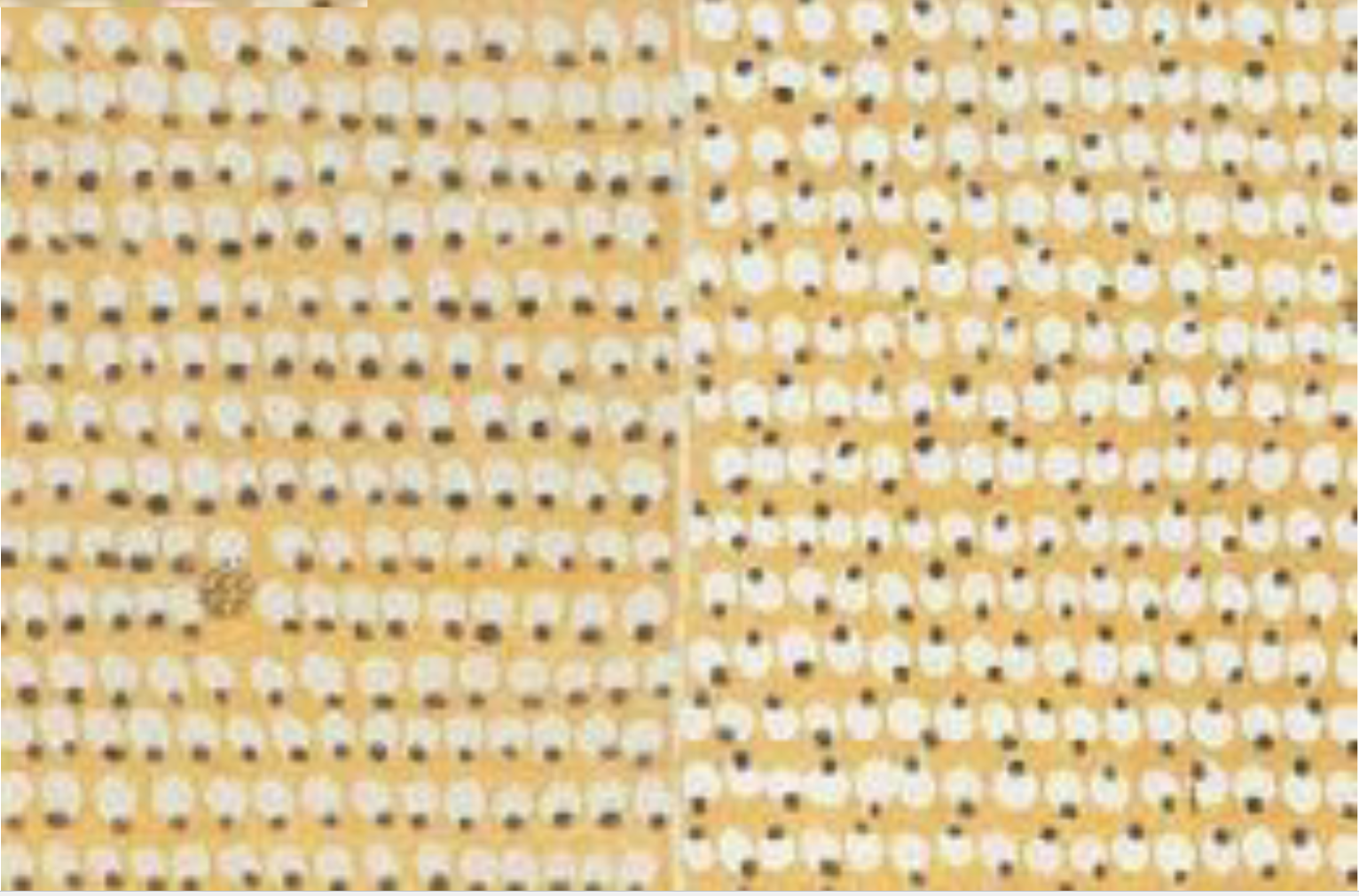
Ellen Gallagher
Untitled
1990
Black history, appears to be minimalist in style, but in fact shows disembodied people and reduces them to their eyes, the cruelty and violence of abstraction and the violence in the US’s history (and now!)
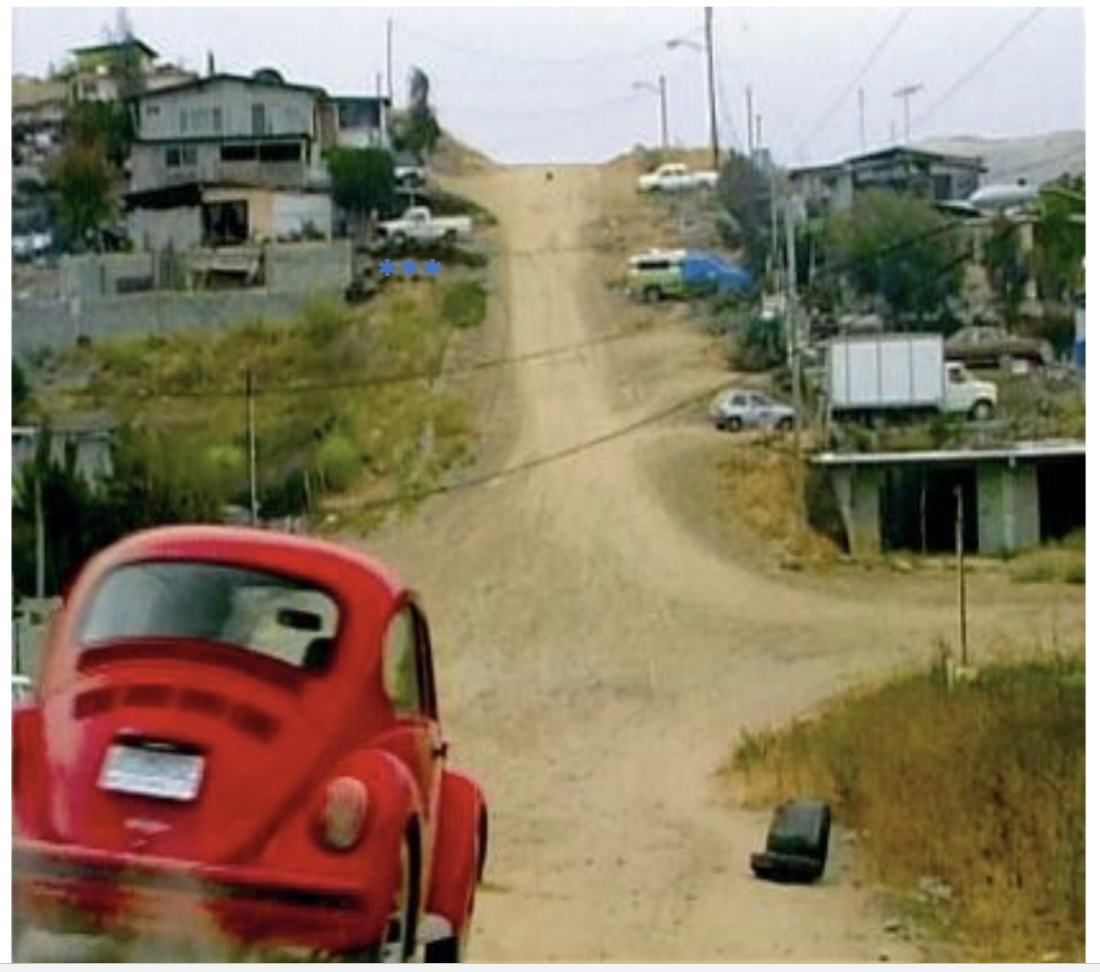
Alys
rehersal
2000
Film was shot on the border between Mexico and the US, the process of a car trying to get over the hill and it repeatedly fails - being bound to fail but trying anyway- crossing the border though its very high chance of failure but keep trying dammit
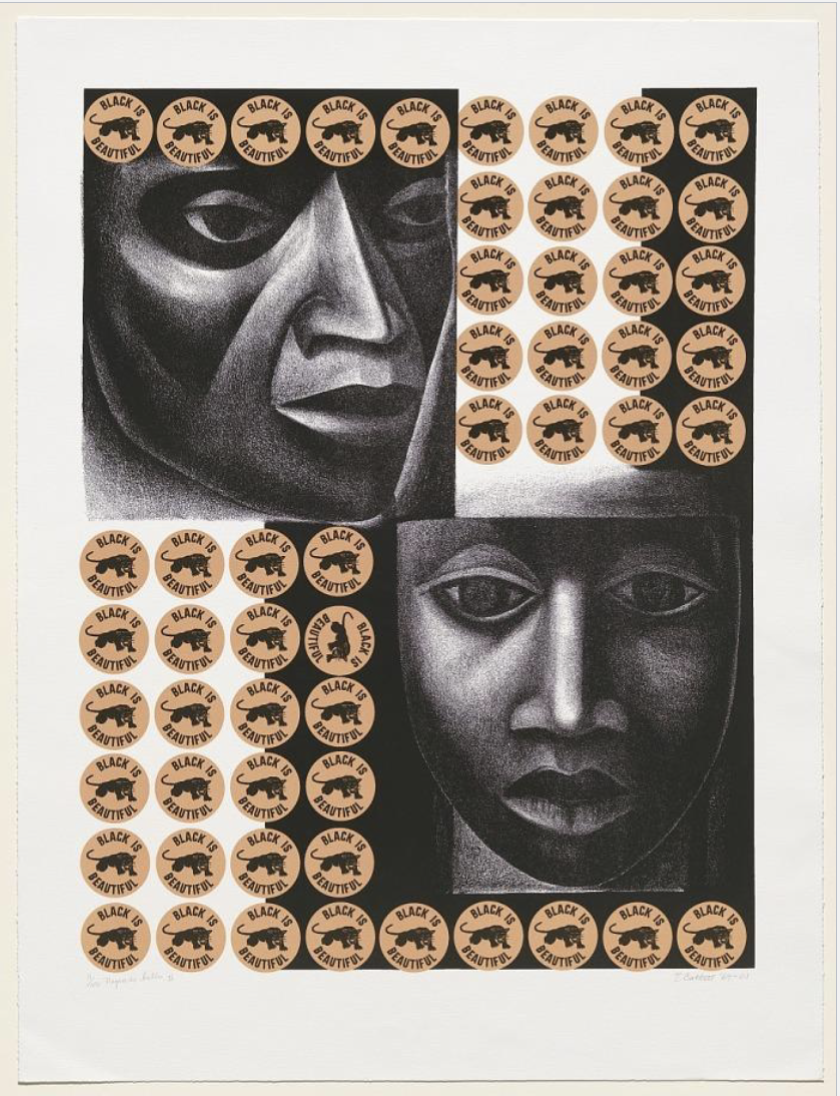
Elizabeth Catlett
Negro Es Bello II
2000
Black is beautiful! :D Feminist work, black women are just as important as the dudes!
Visual representation and reminder of the beauty, resilience, and strength of the Black Power movement.

Edward Burtynsky
Manufacturing #3
2000
Abstraction and deindividualization of people, shows them fighting against their workplace, protest, also not viewing the workers from the same plane so it furthers the view that East is different from the West.
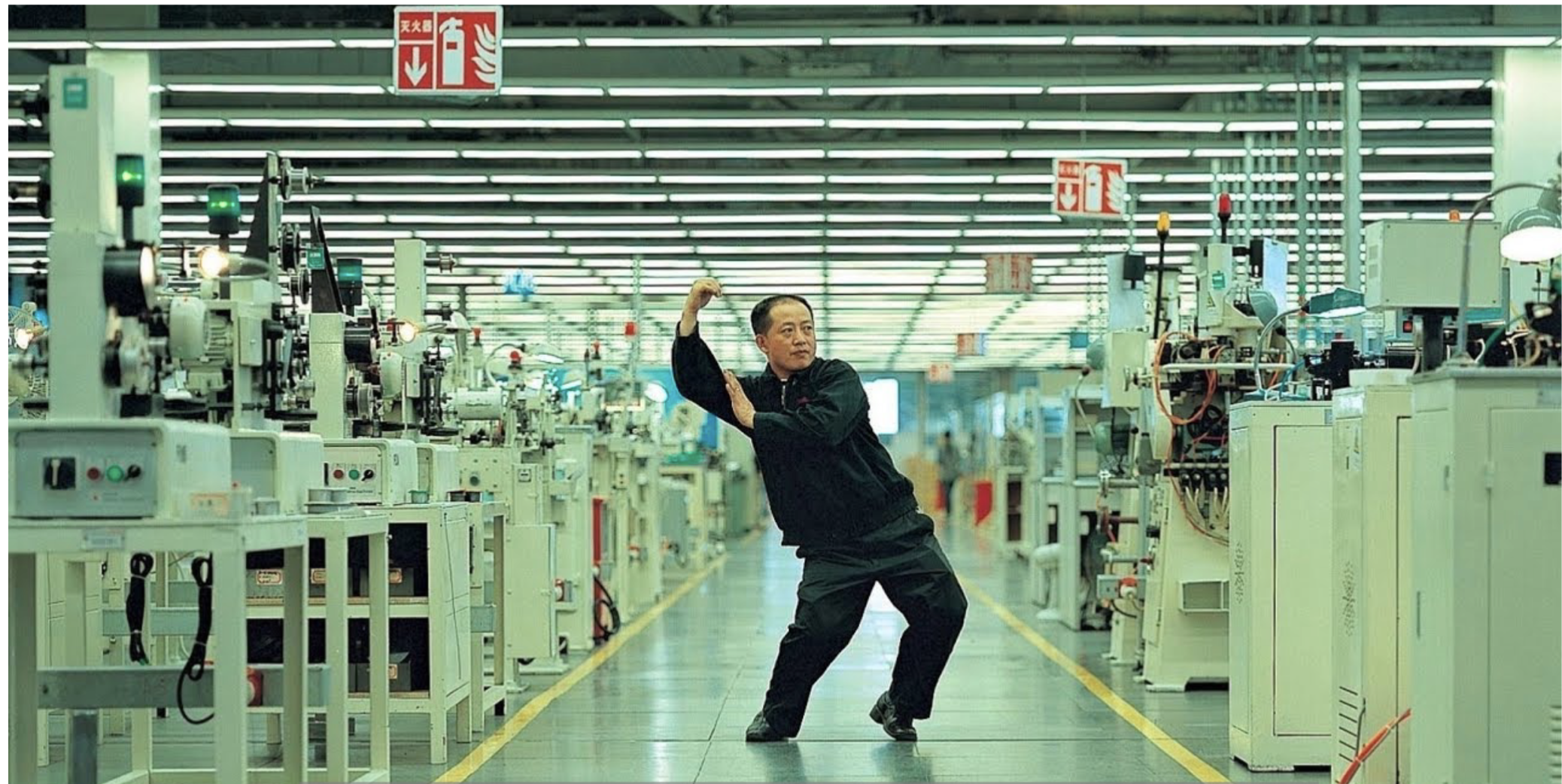
Cao Fei
Whose Utopia
2000
Shows the individuality and dreams, passions, hobbies of people, giving back their individuality and humanity from a dehumanizing workplace they are constrained to. Chinese society shenaniganary
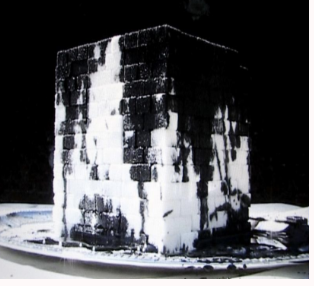
Kader Attia
Oil and Sugar
2000
Destroying the whiteness of the white cube, debunking how the US presents itself as ideal, perfect, and universal, by taking apart the white cube and deconstructing it, it breaks apart the illusion of purity and perfection that the US and whitewall gallery spaces present themselves as, and shows it’s much more dark and insidious system.
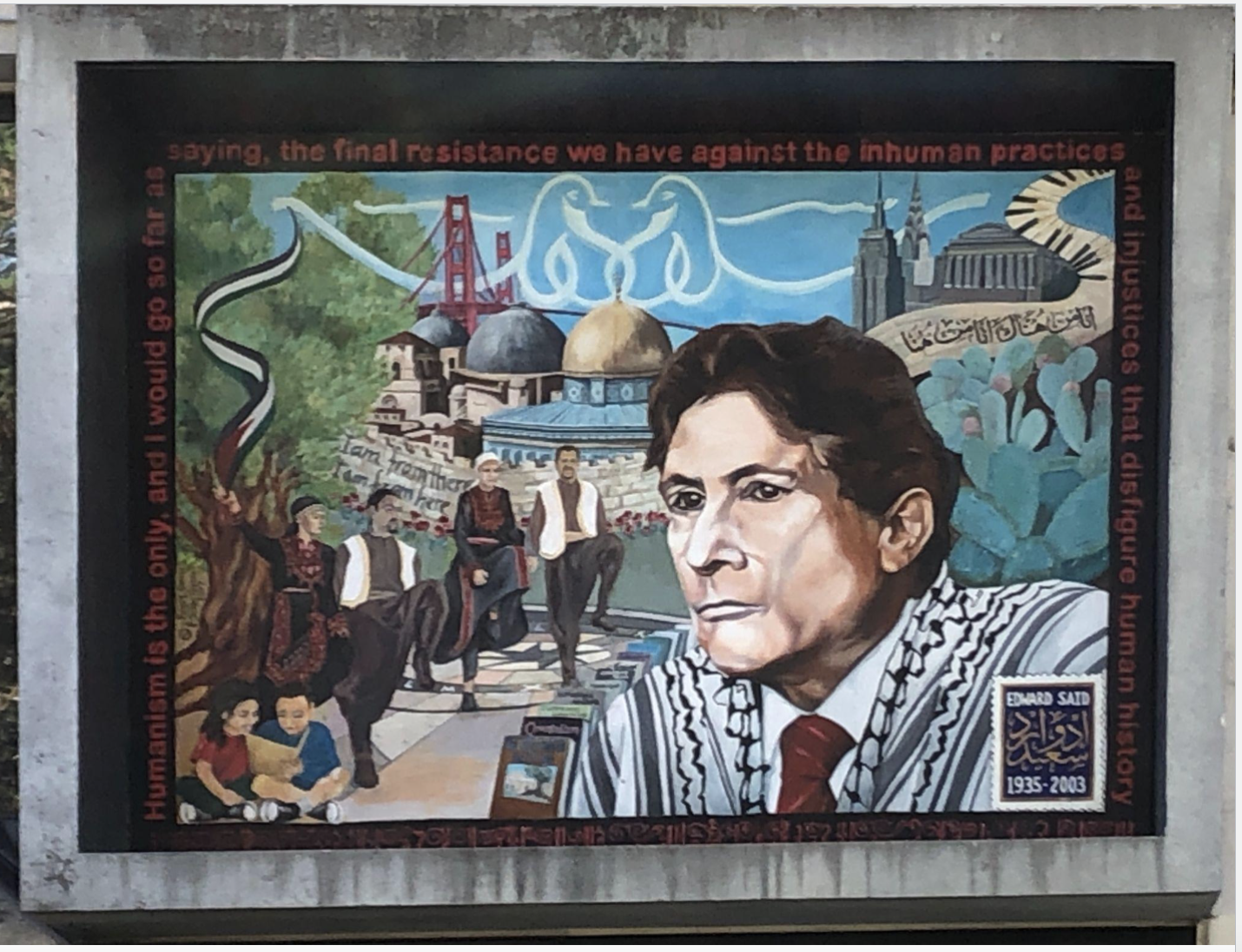
Fayeq Oweis & Susan Greene
Edward Said Mural
2000
Represents the Palestinian culture and honors professor Edward Said who was an activist against Orientalism
had to confront the uncomfortable nature of history

Jacqueline Medez, Marc Nicely & Larry Sallaway
We Are Still Here
2000
It’s a tribute to Bay Area Native America,s men and women who have experienced oppression.
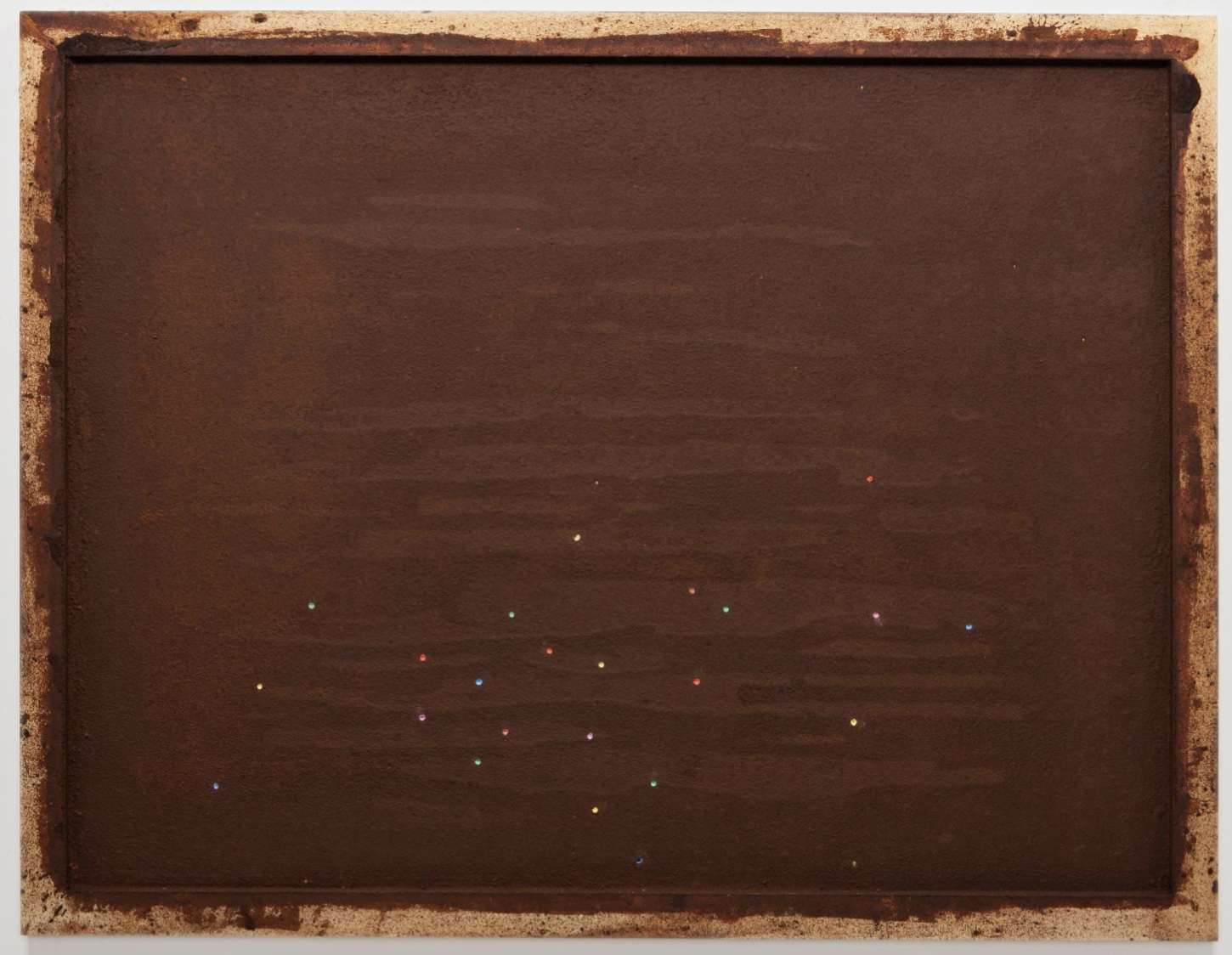
Pascale Marthine Tayou
Sierra Leone Landscape
2010
Rematerializing the monochrome, critiquing western abstraction
Depicts Sierra Leone through the eyes of the West and Europe and how they only see the land as a place to extract materials from their own wealth
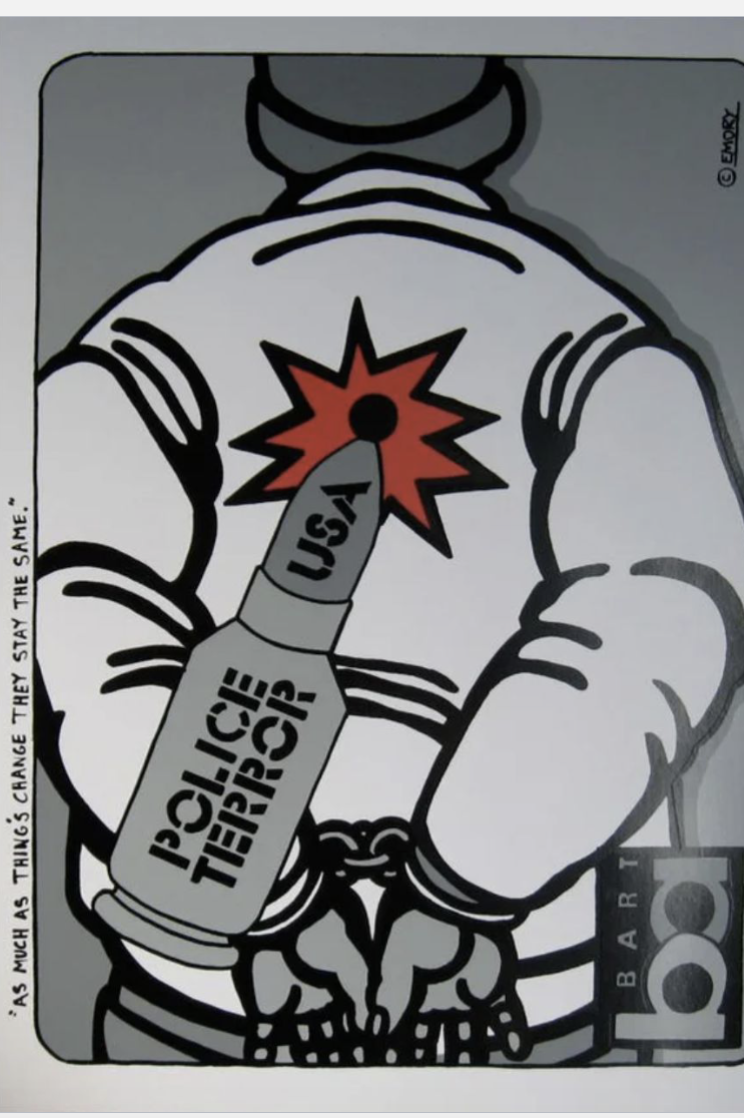
Emory Douglas
As Much as things Change, They Stay the Same
2010
Honoring Oscar Grant, who was murdered by policemen and one of the first police violence cases to be caught on camera. As much as the world progresses, there will always be institutional problems and deep rooted racism.
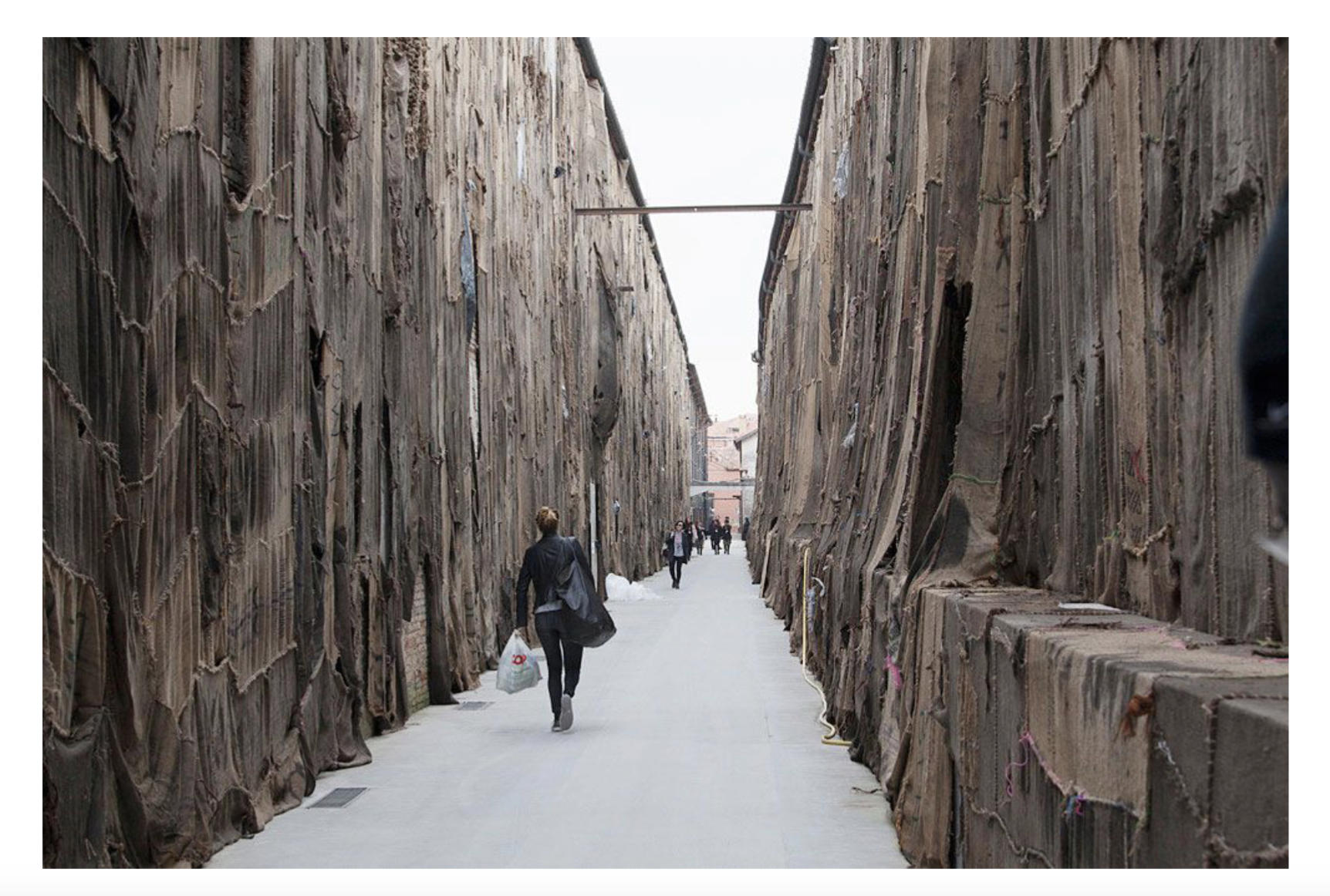
Ibrahim Mahama
Out of Bounds
2010
30 m long corridor is covered in jute sacks which were used to transport cocoa beans internationally and it talks about how farmers are exploited by the US in order to make money. We love capitalism!
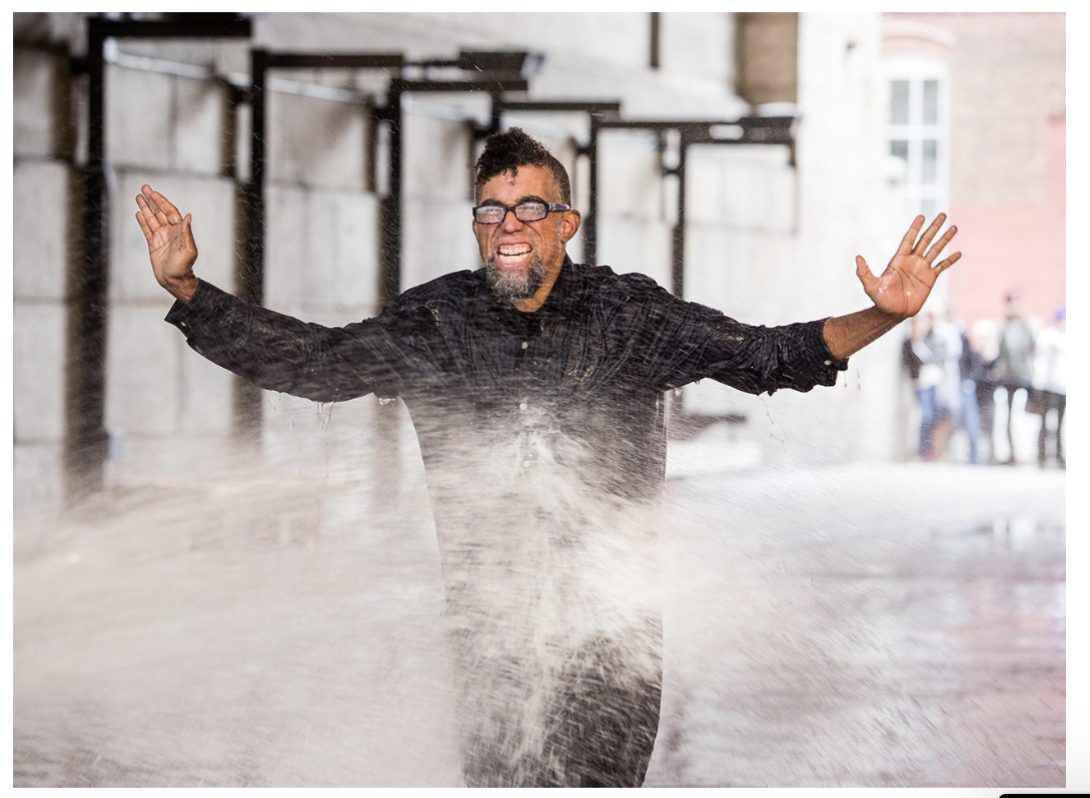
Scott
on the impossibility of freedom in a country founded on slavery and genocide
2010
Referencing a 1963 Civil Rights event, where non violent protesters were blasted with water hoses, using the human body as a visualization of the physical struggle and pushing up against inequality and racism.

Agents of Change
Ethnic Studies and the Arts
2010
Examining the racial conditions on college campuses across the US in the late 1960s, focusing on two protests at San Francisco State and Cornell, the demand was for more curricular changes and more inclusion.
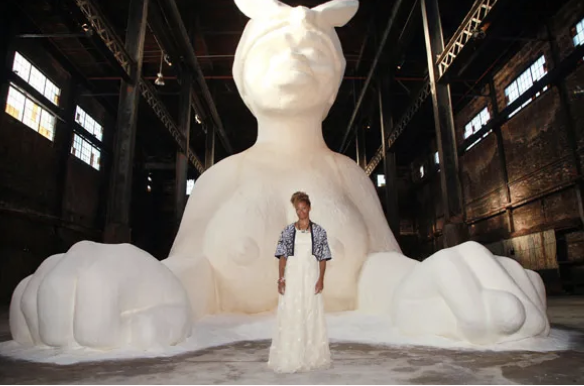
Kara Walker
A Subtlety (The Miraculous Sugar Baby)
2010
Celebration and homage of the underpaid and overworked people who worked tirelessly in the sugar industry, and talks about how the slave trade had traded sugar for bodies and bodies for sugar, blood sugar. Also about how we only see the end products of a supply chain and never think about the exploitation of others that’s allowed us to get said item.
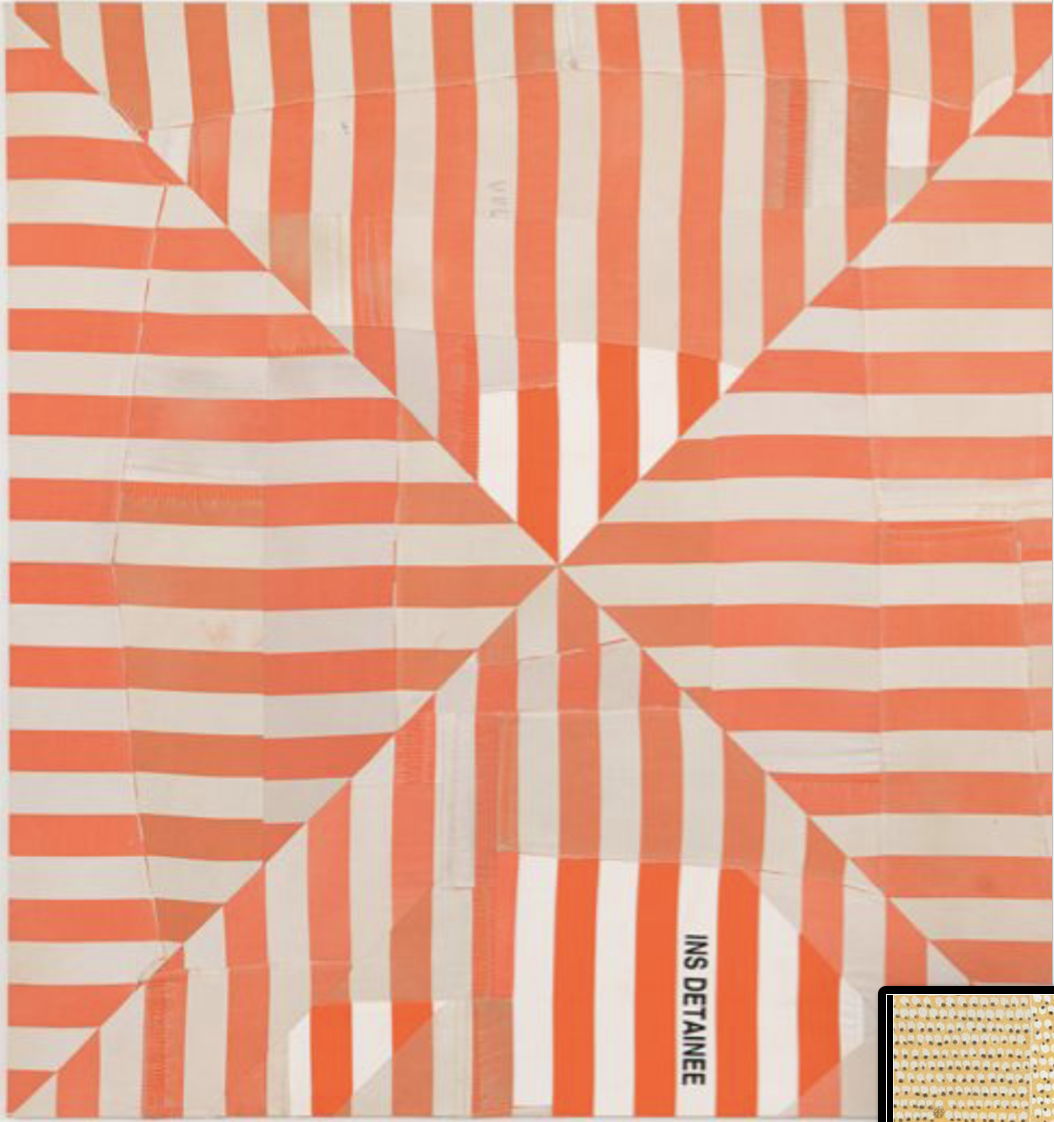
Hank Willis Thomas
What you see is what you see (Stella)
2010
Challenges the minimalist view “what the artist sees is what everyone sees” since every individual has their own explicit experiences and will always interpret artwork differently due to said experiences.
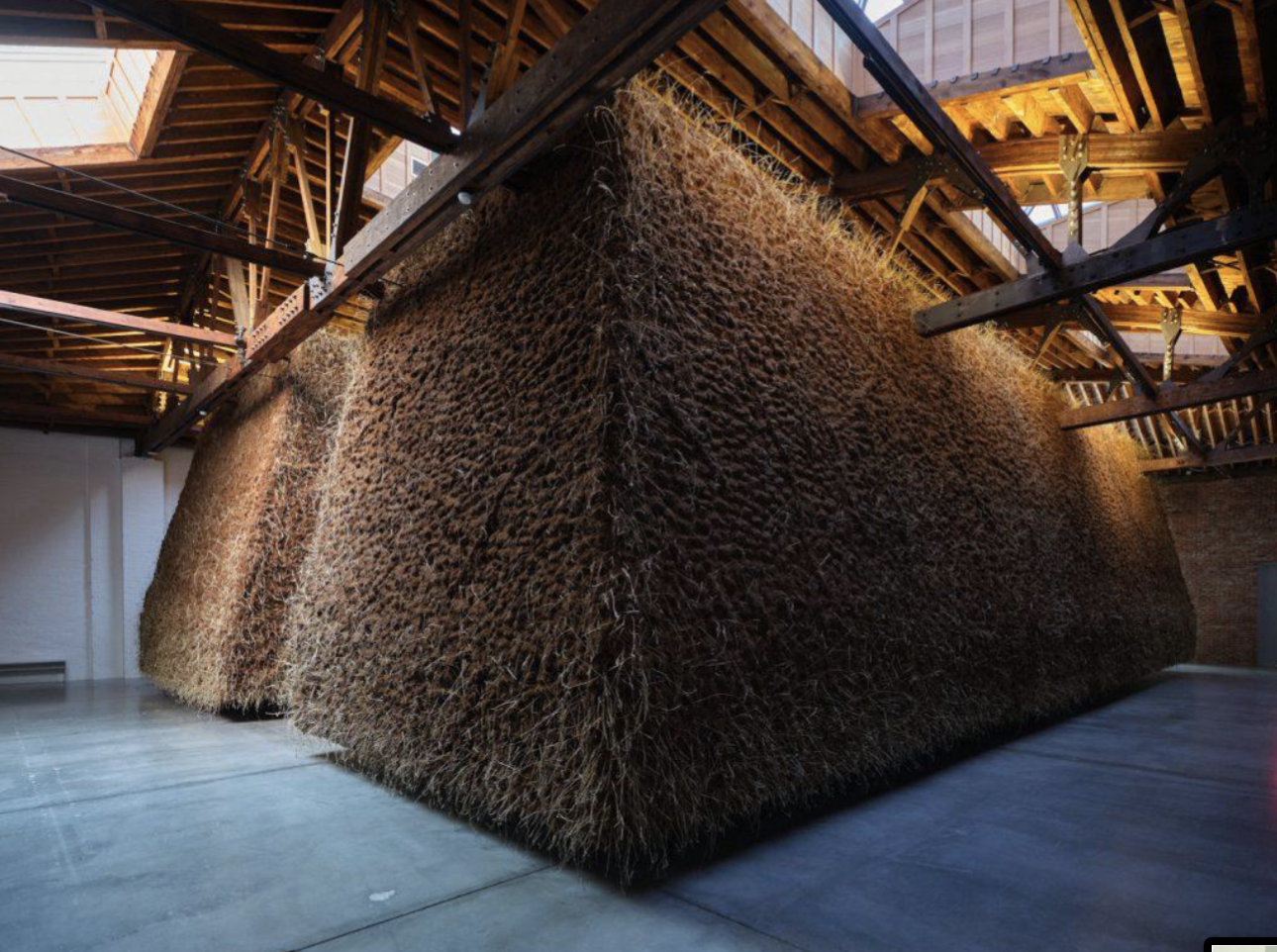
Morelos
The Embrace
2020
A short poem gives instructions encouraging with the ground
Hulking, giant mass of the earth, and giving people the ability to get physical and touch the earth and smell it, experience it, encourages people to touch grass
Brining “dirt” back into the gallery